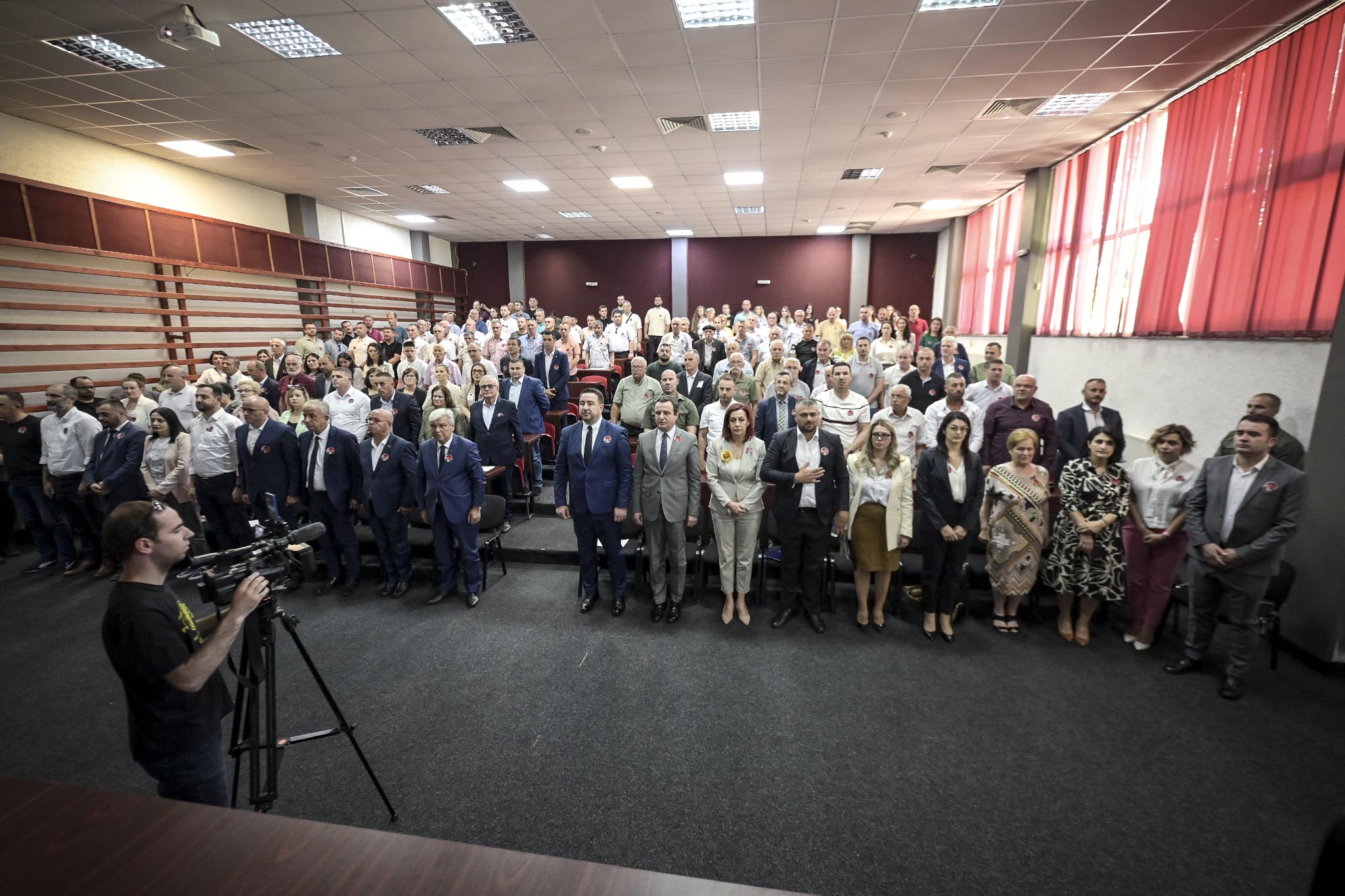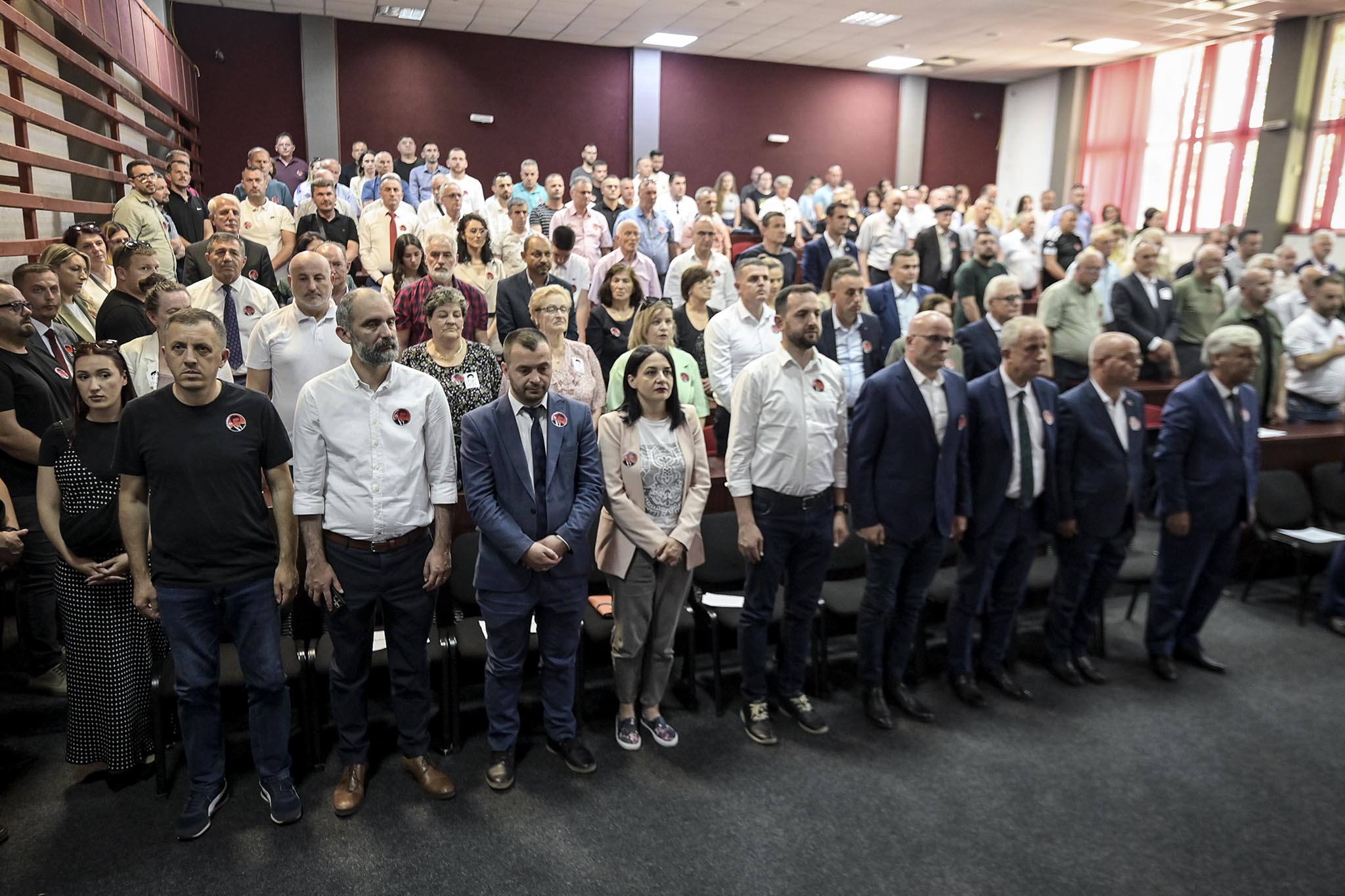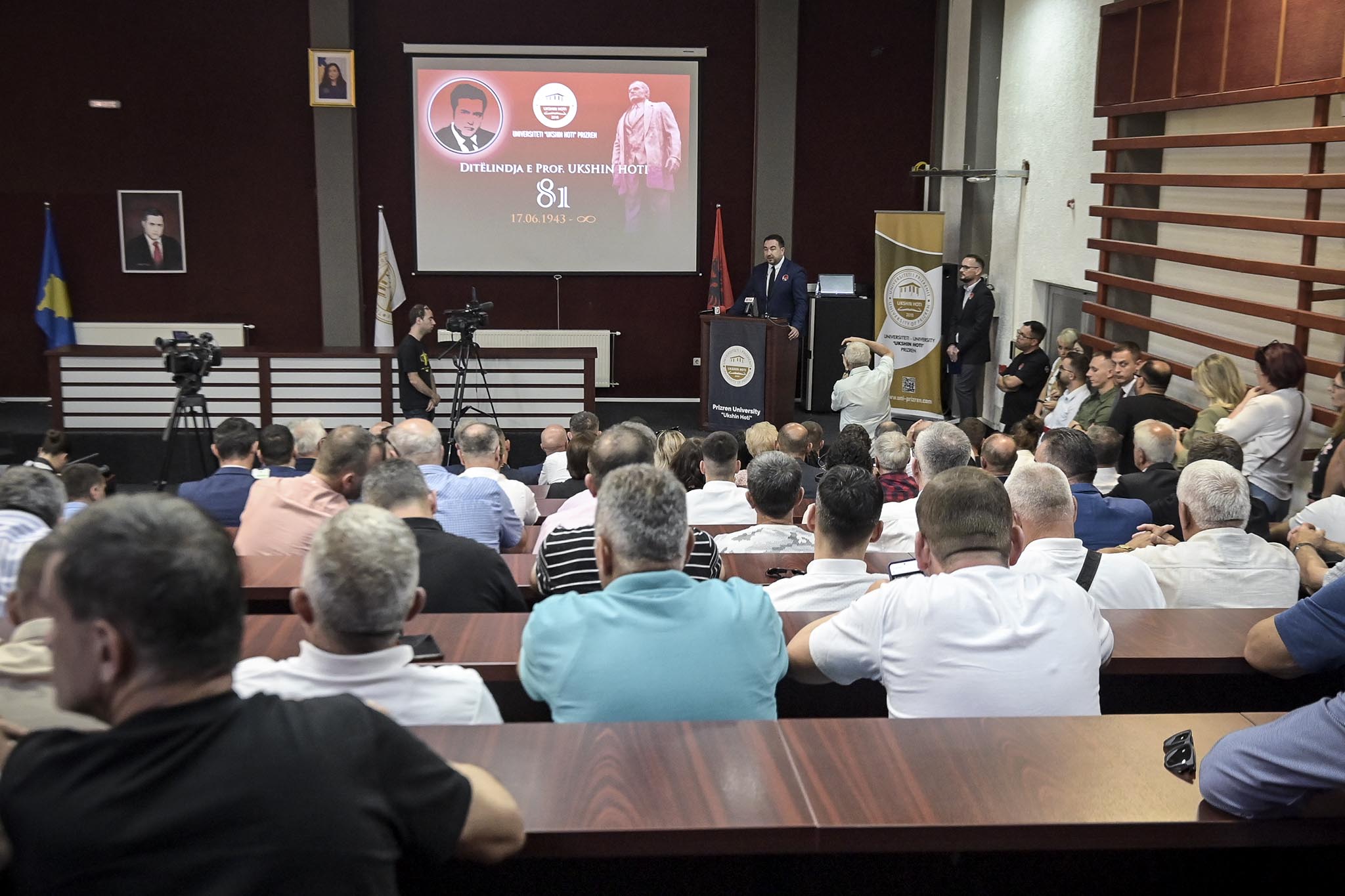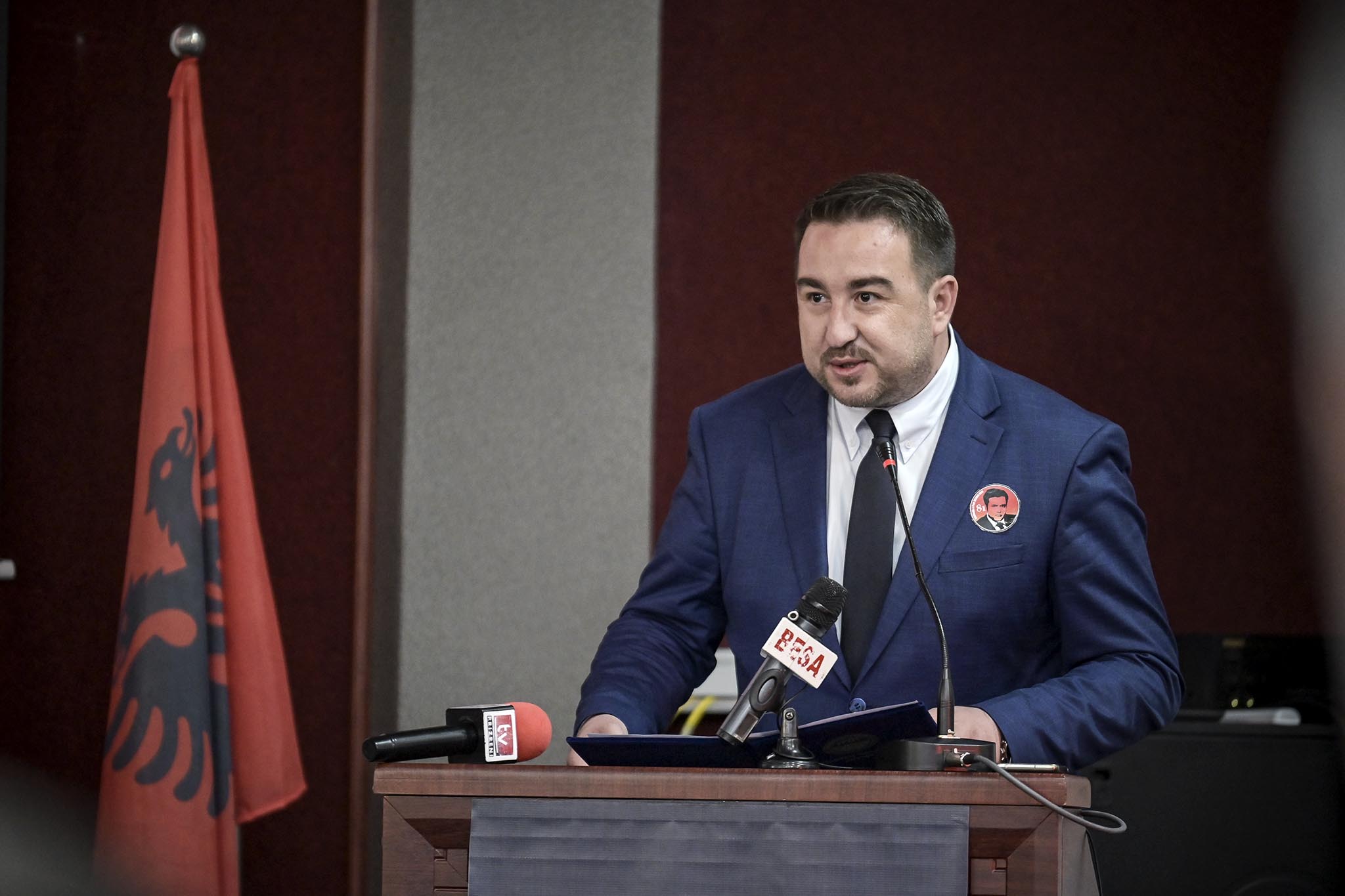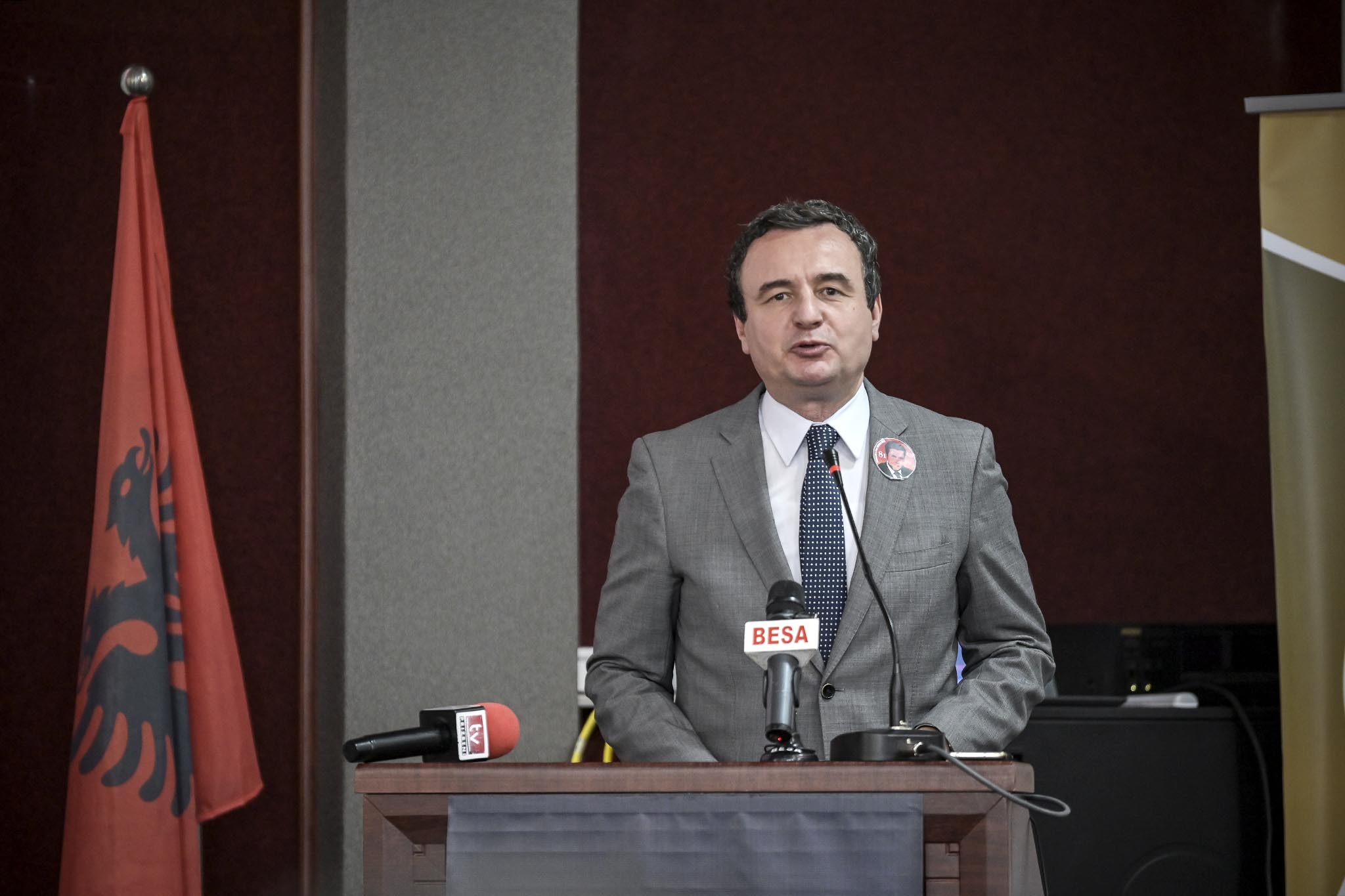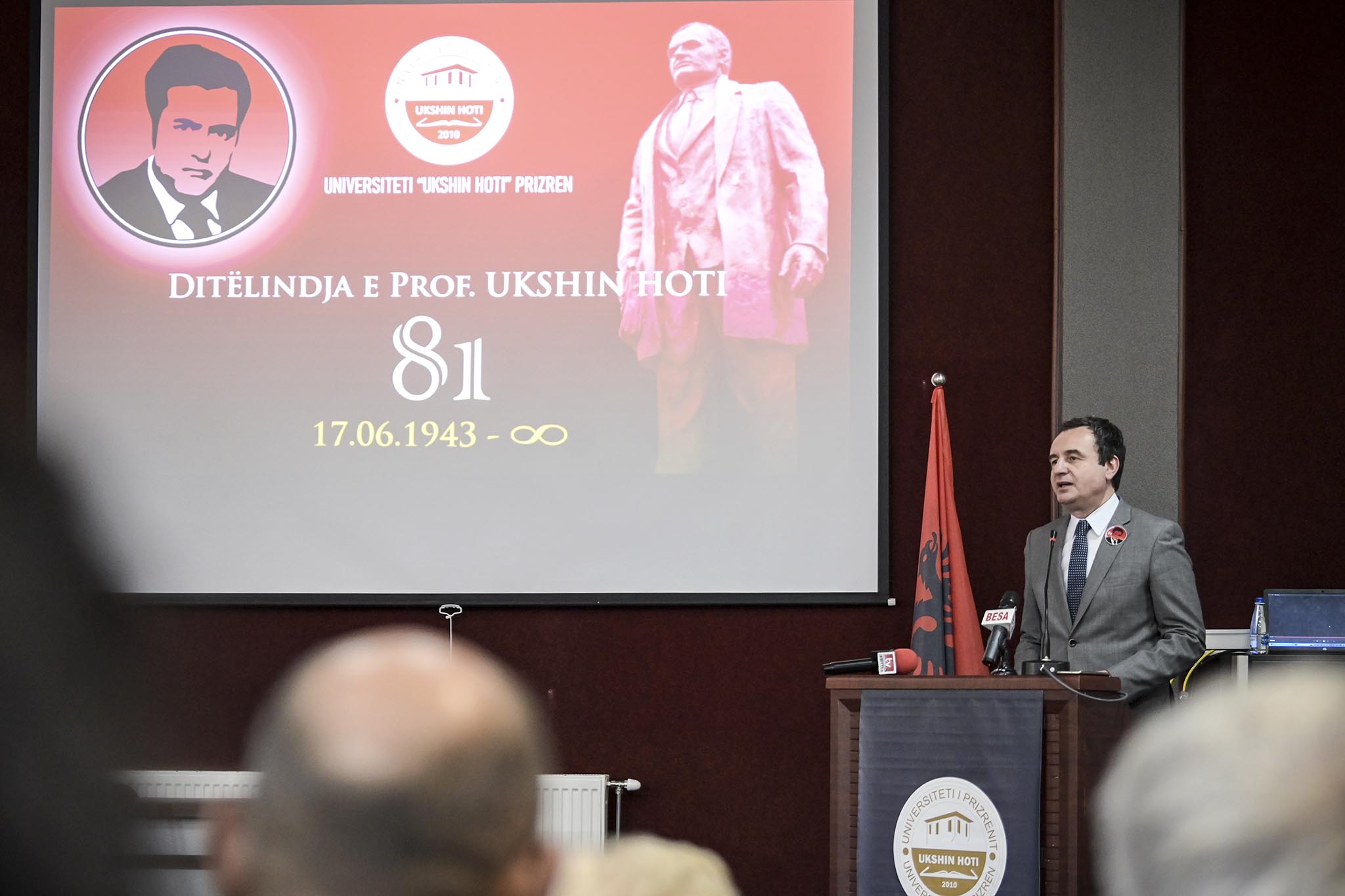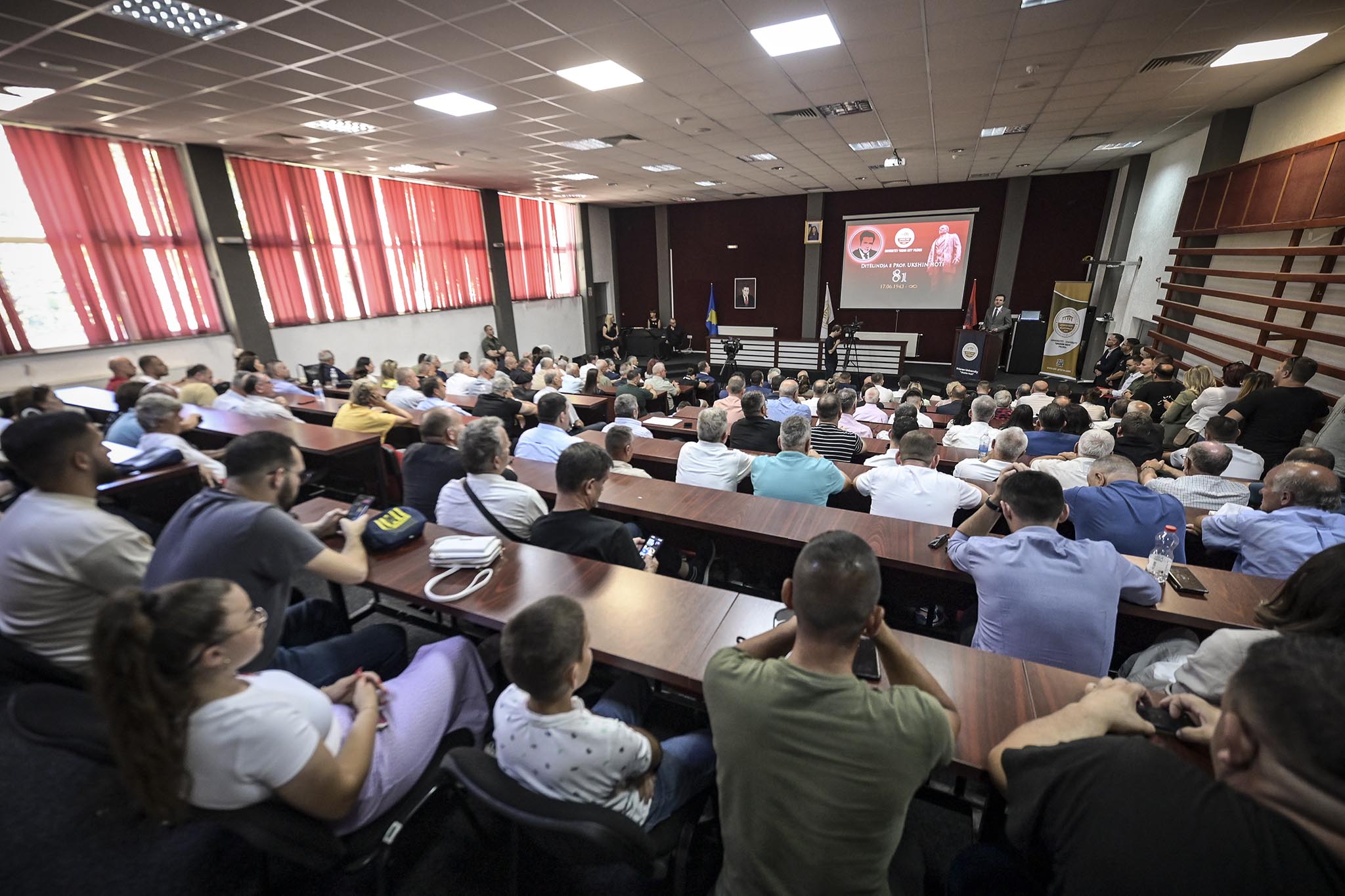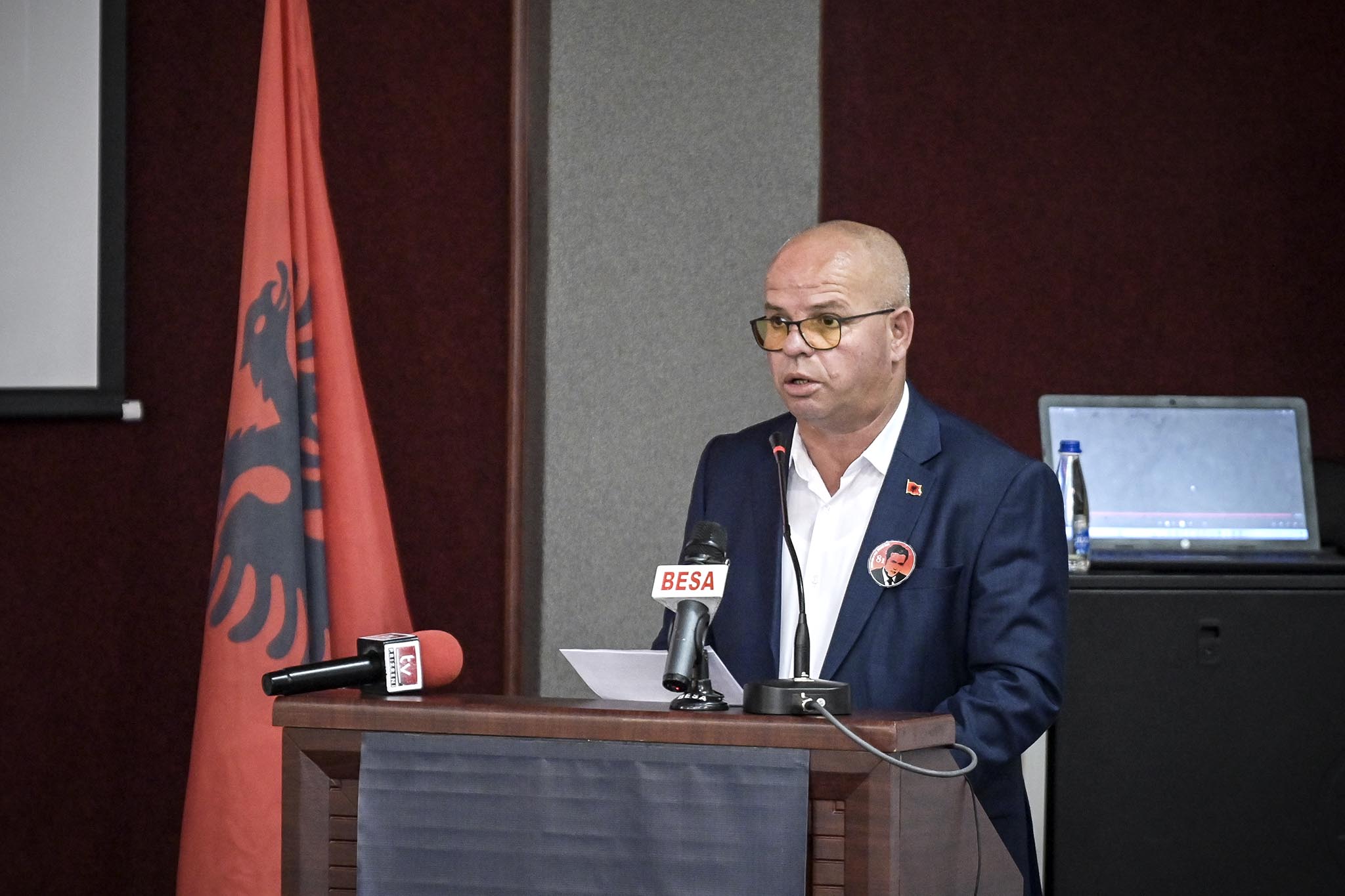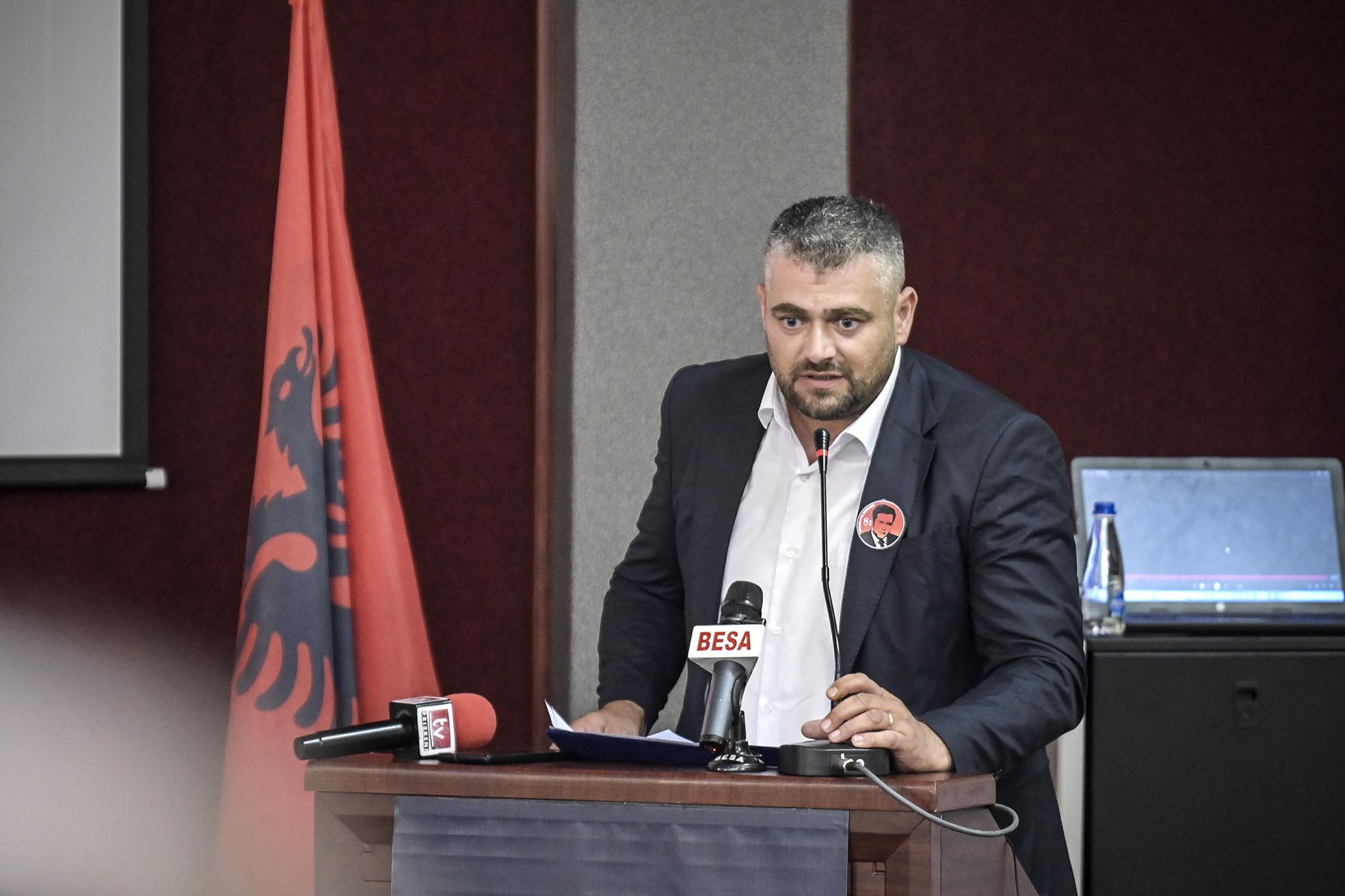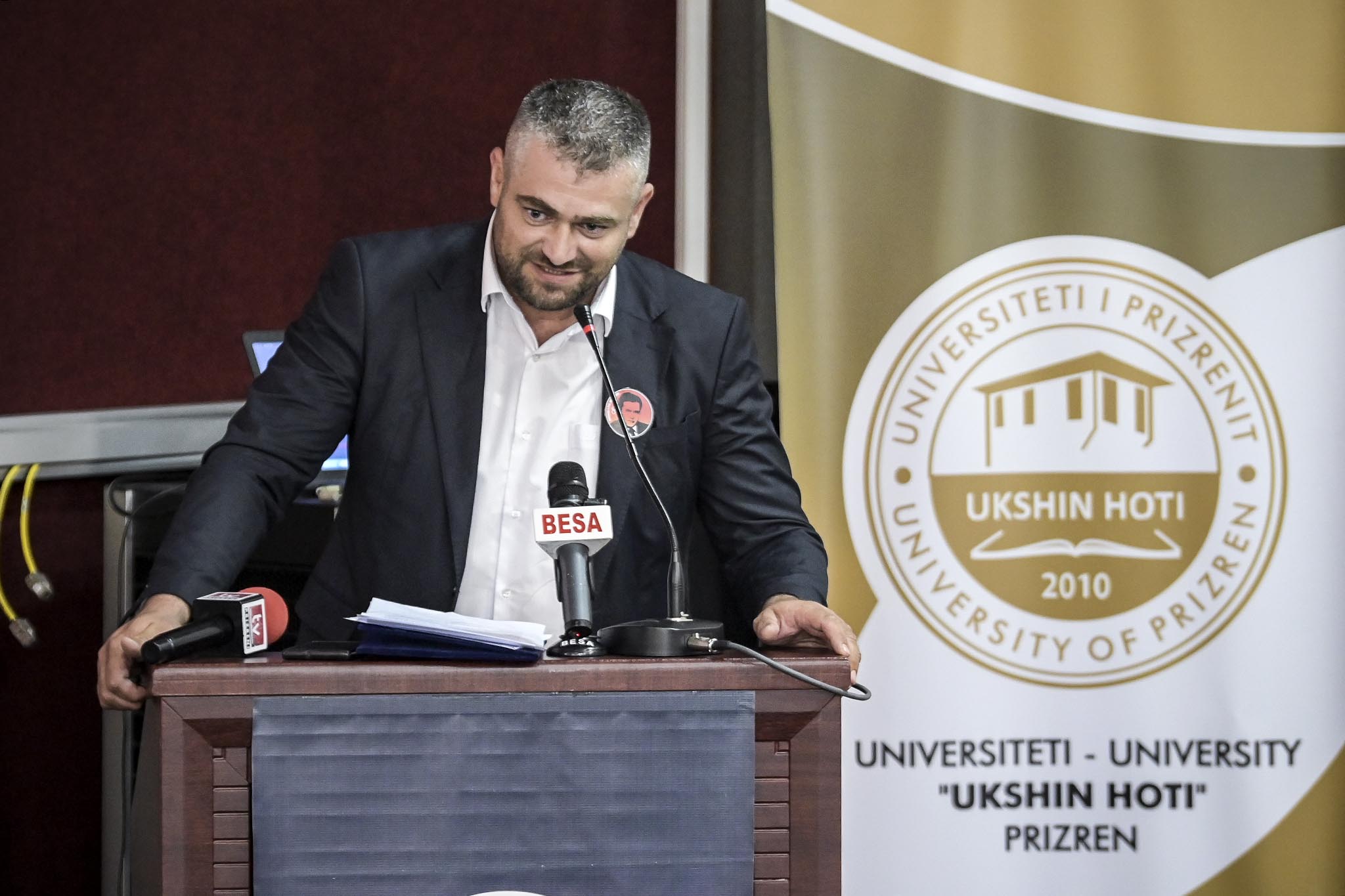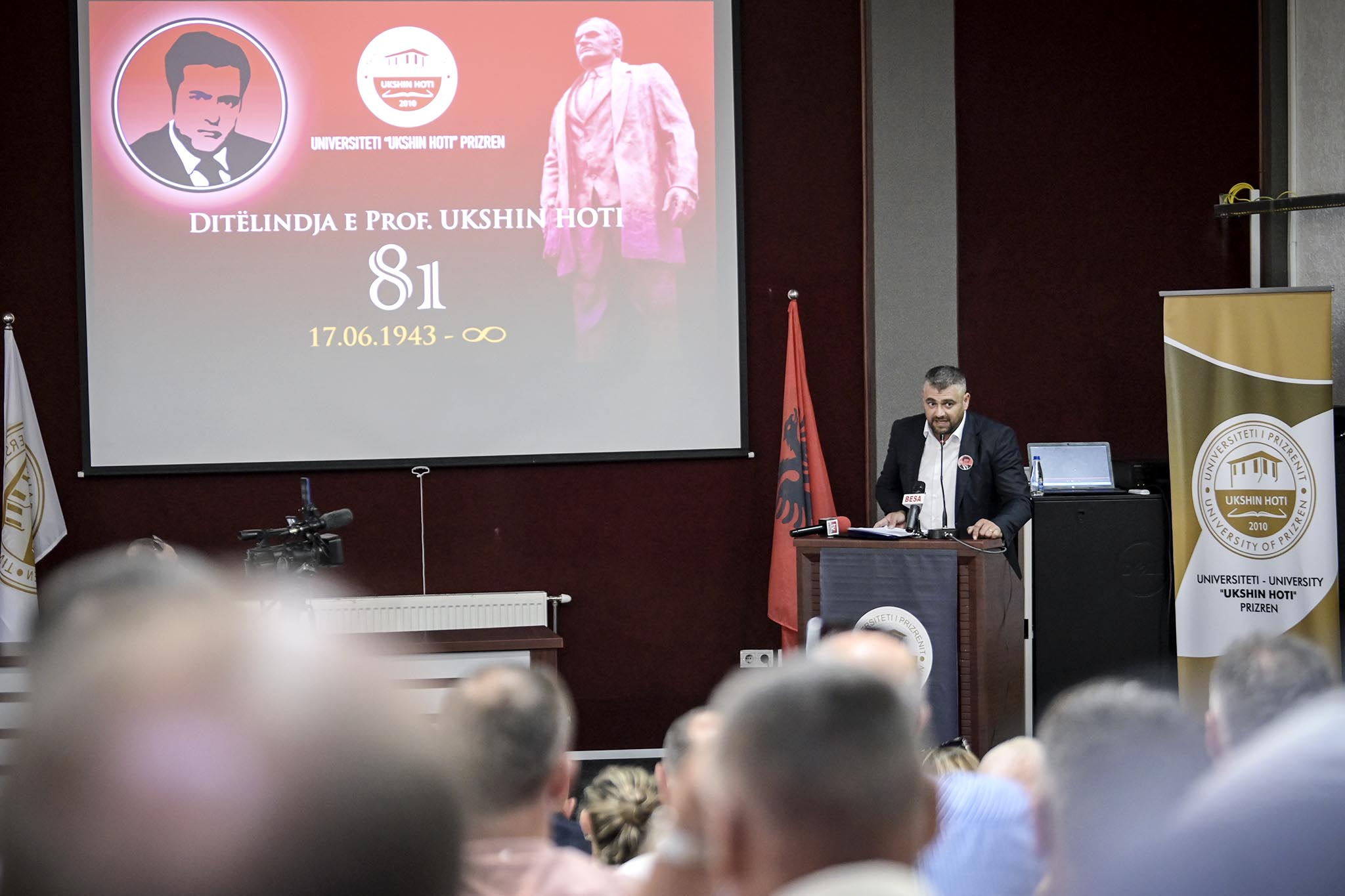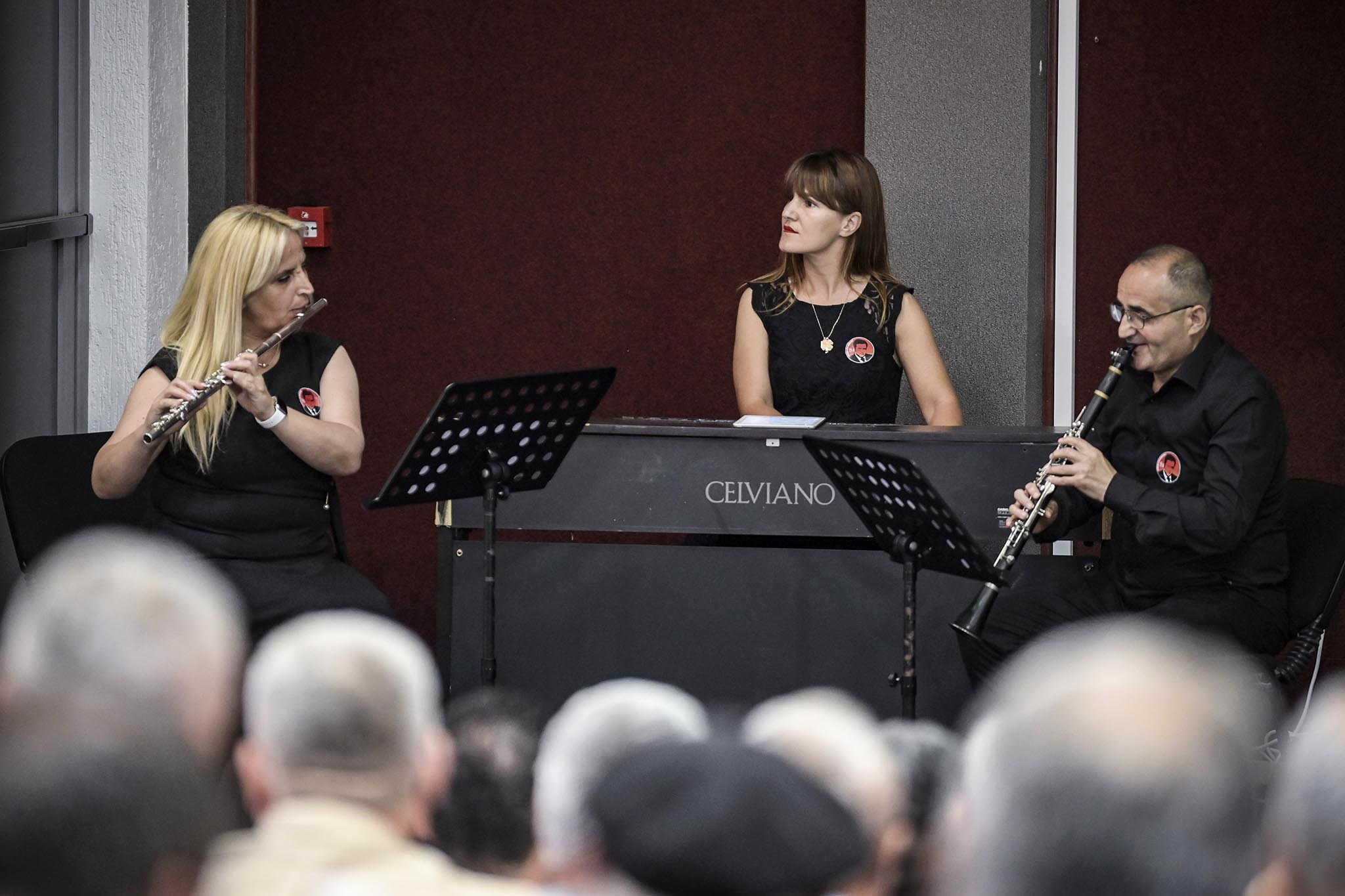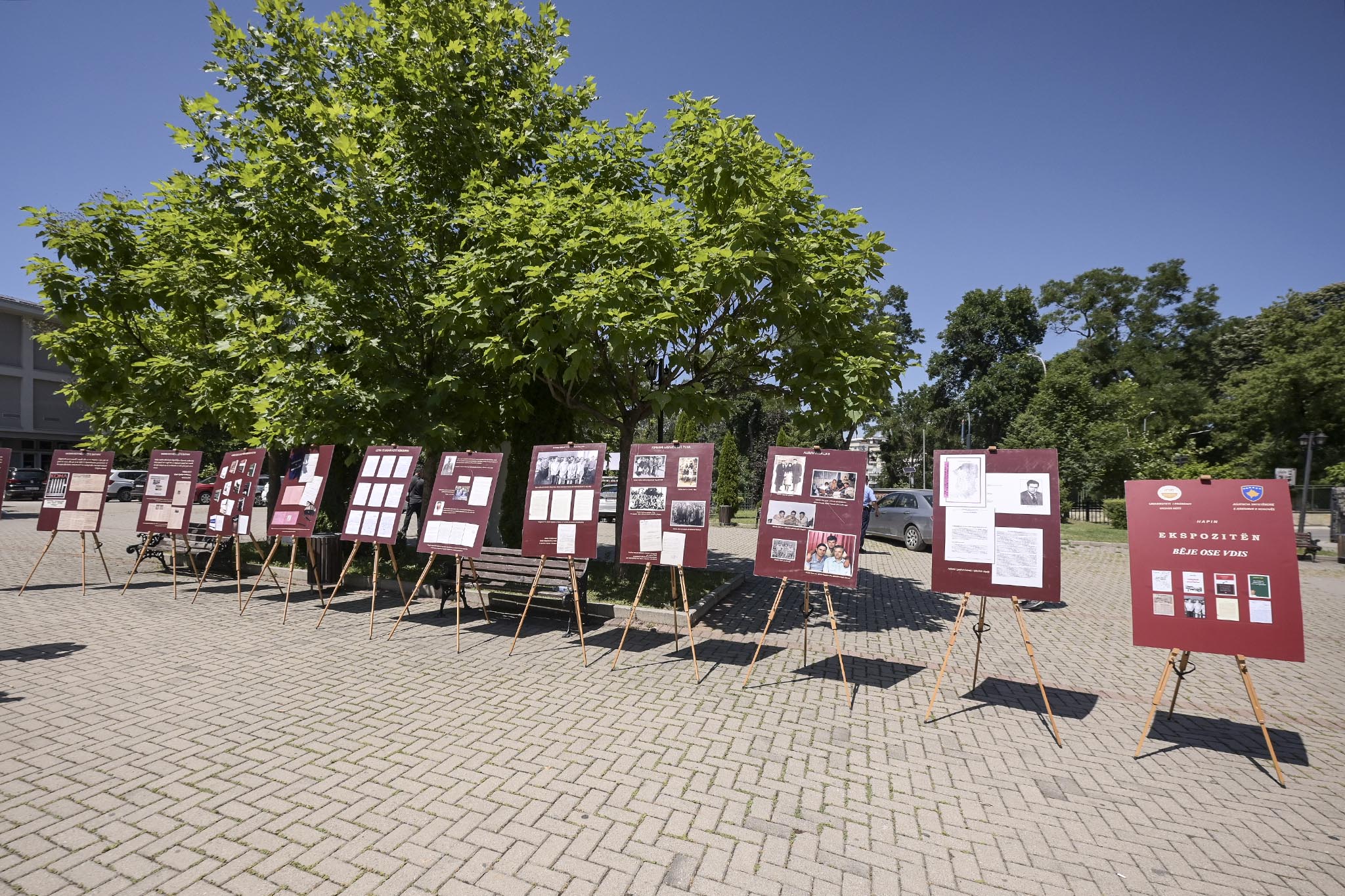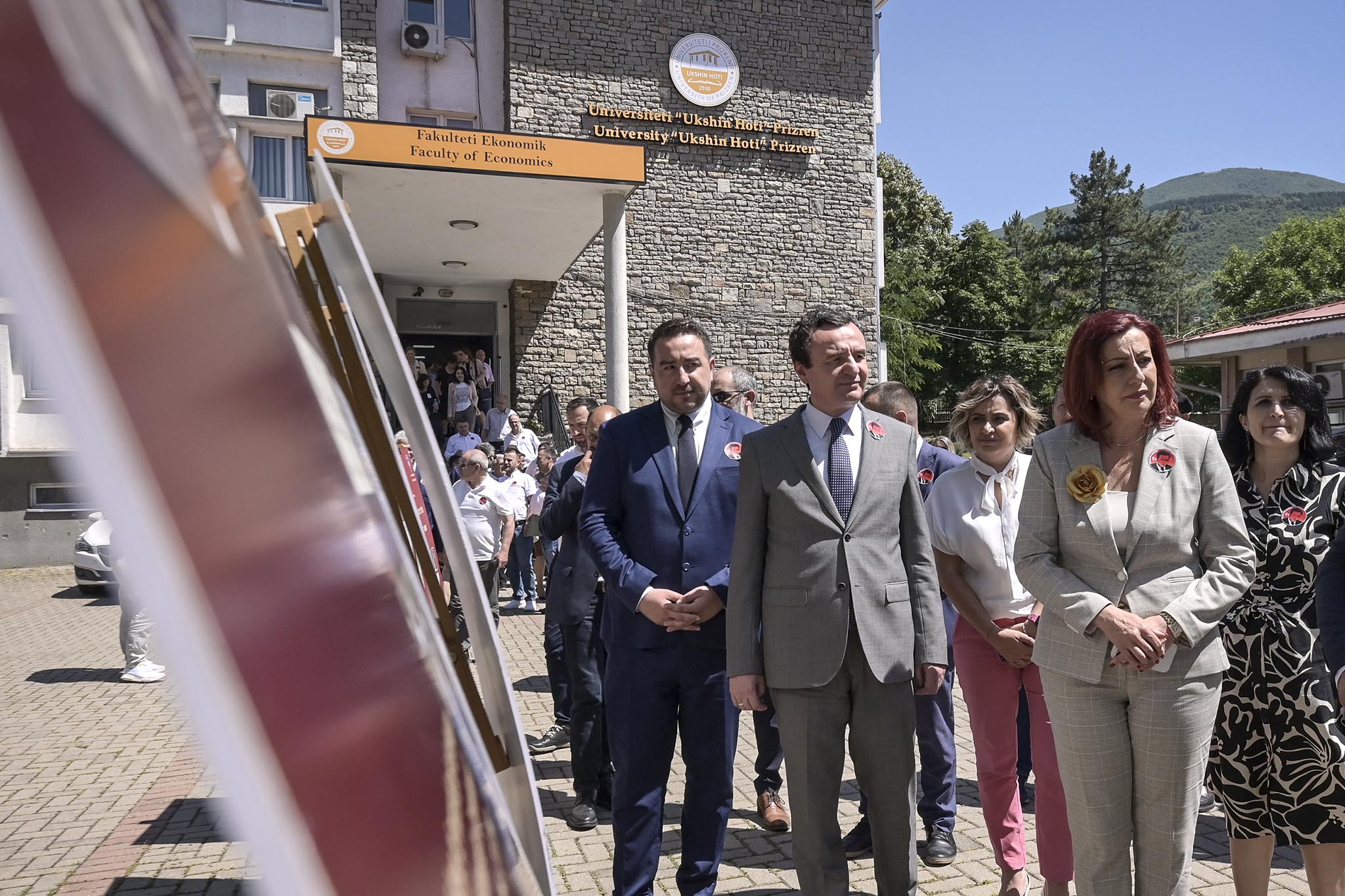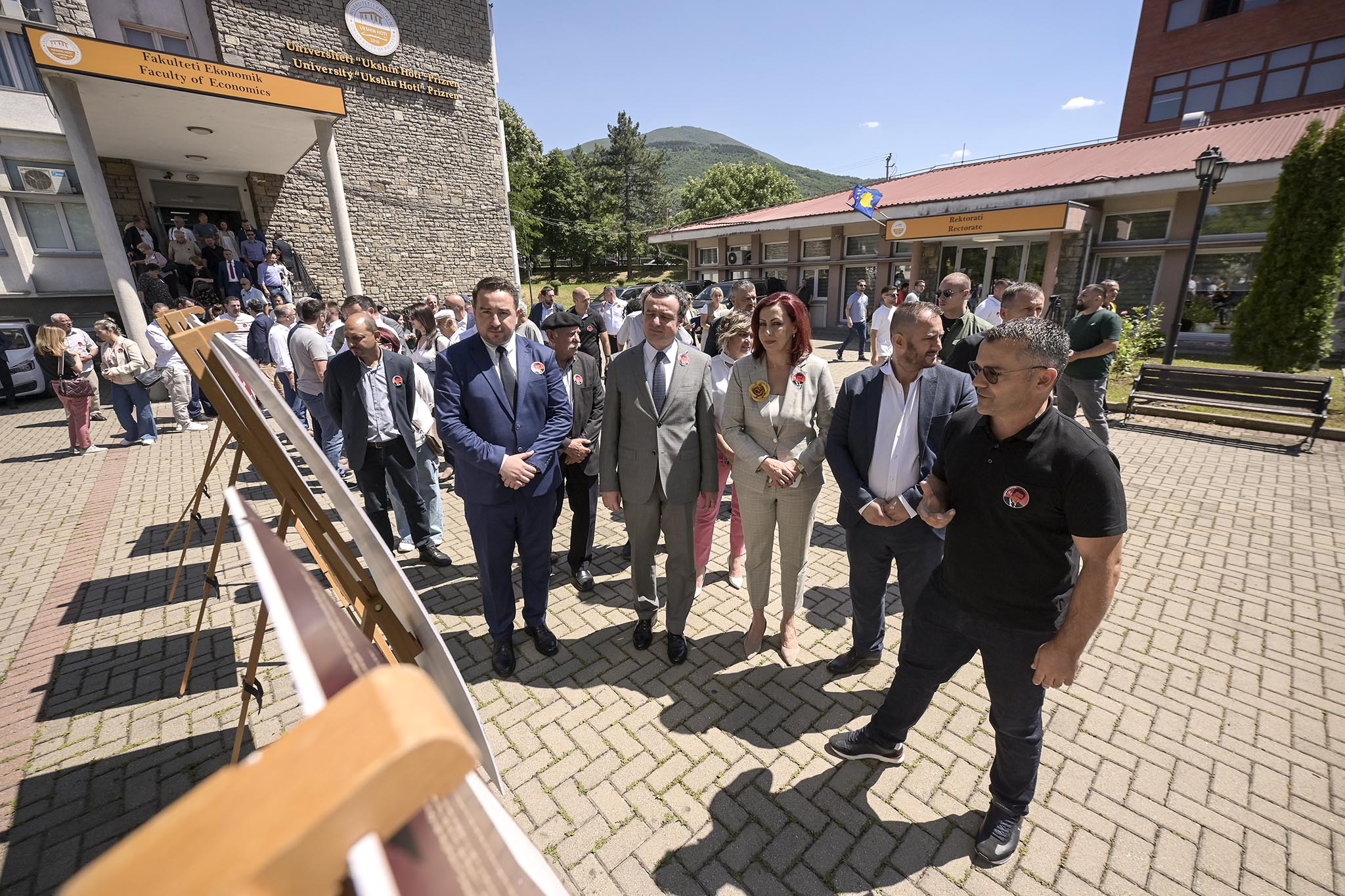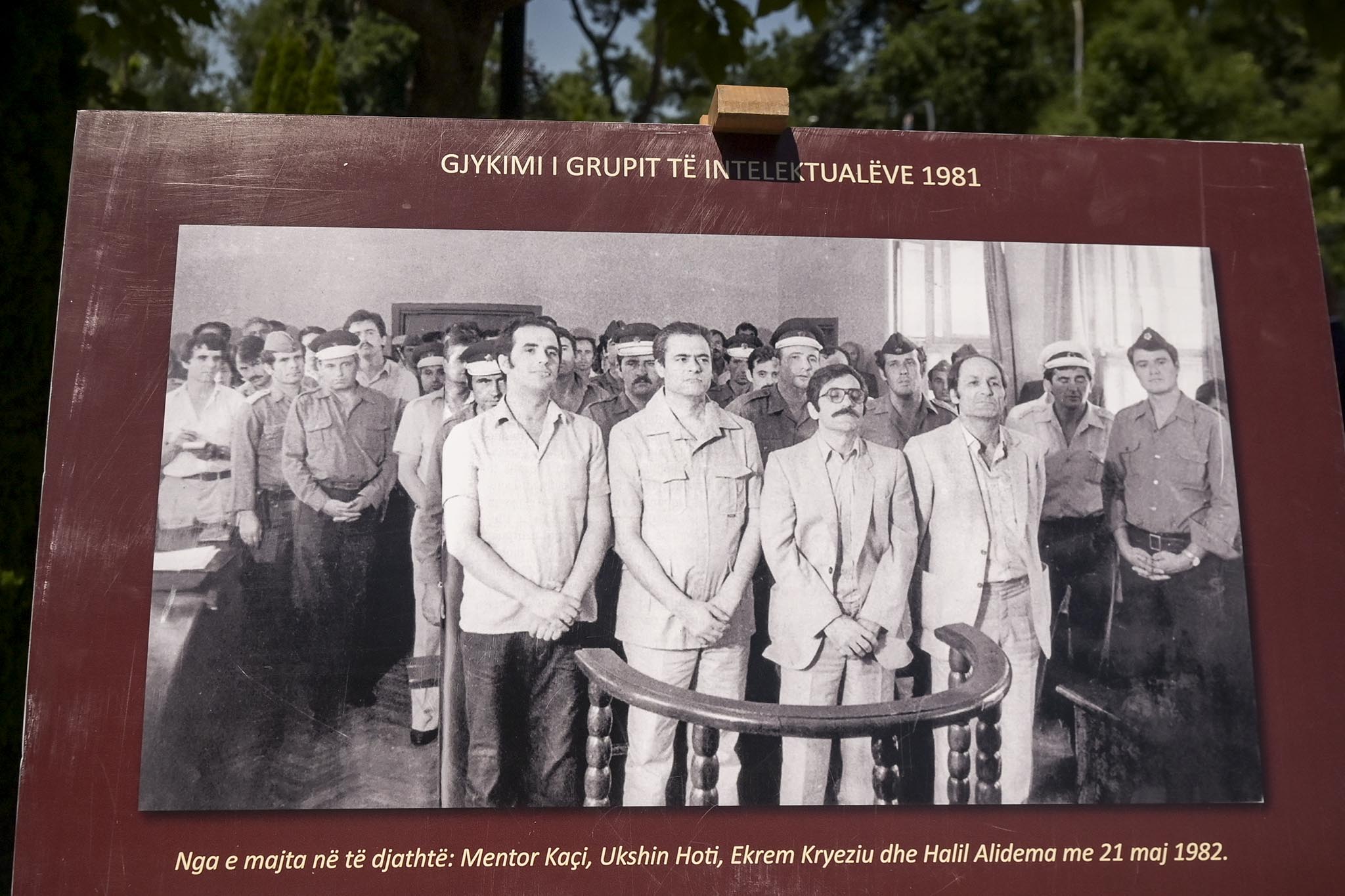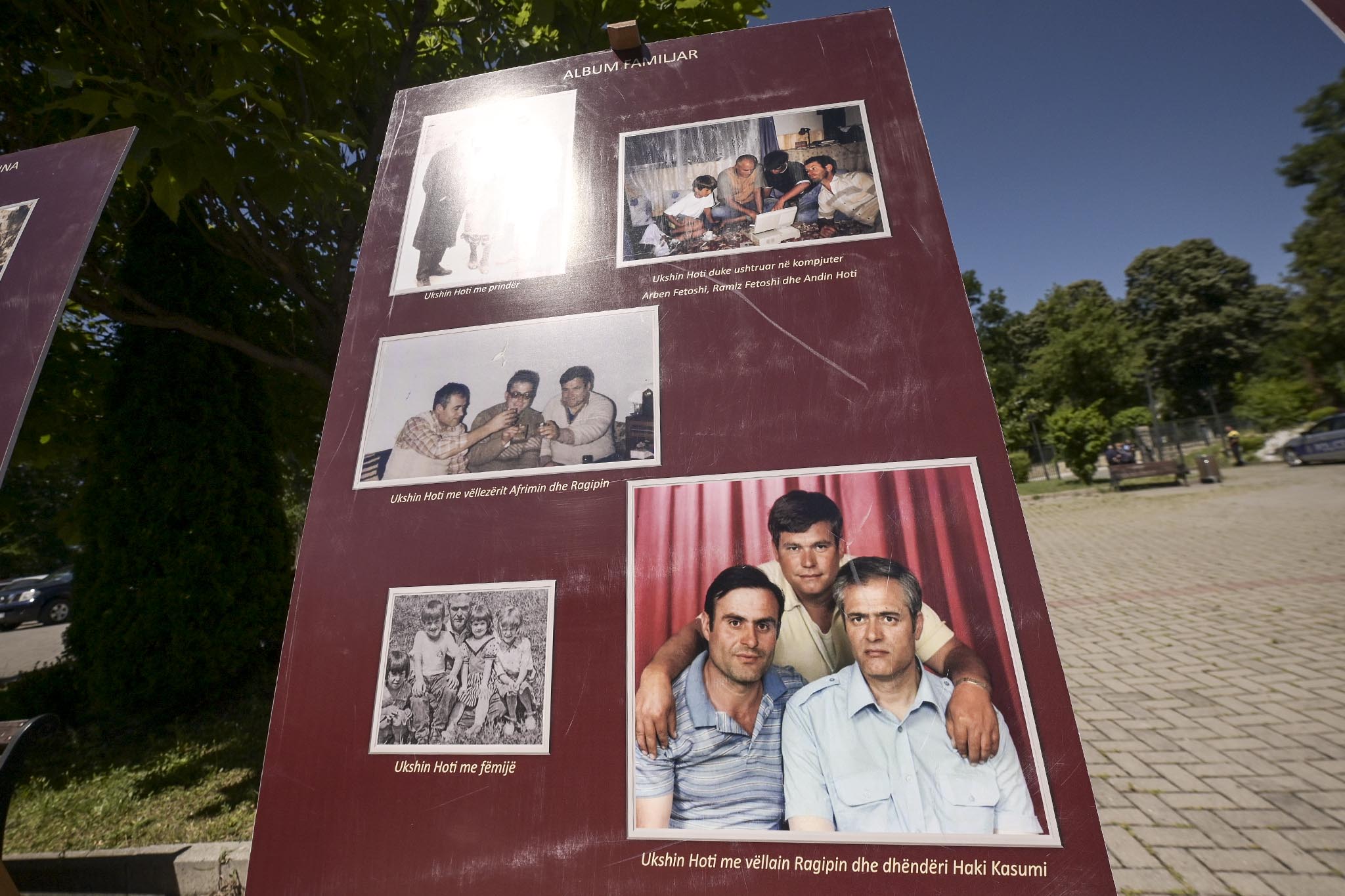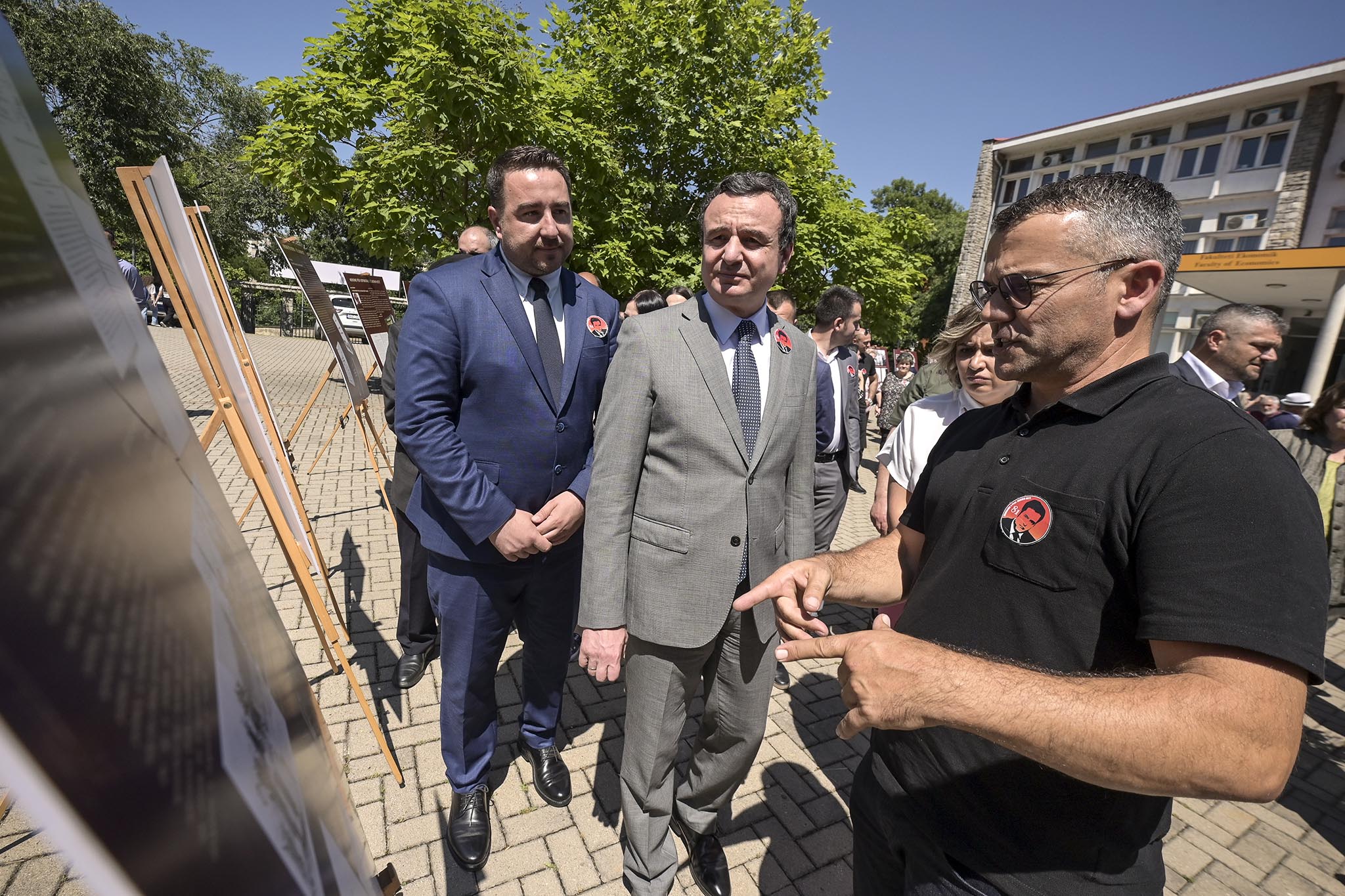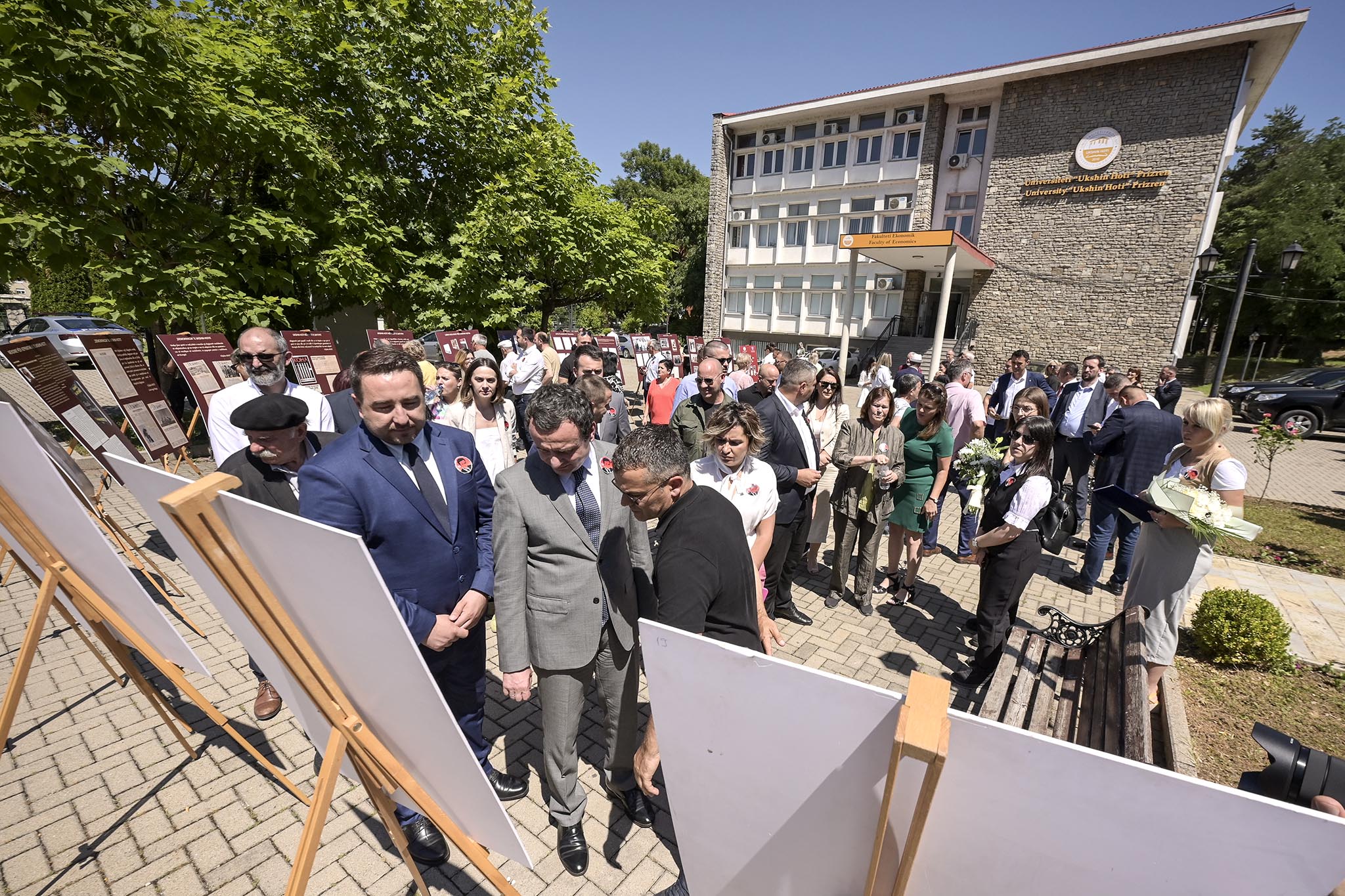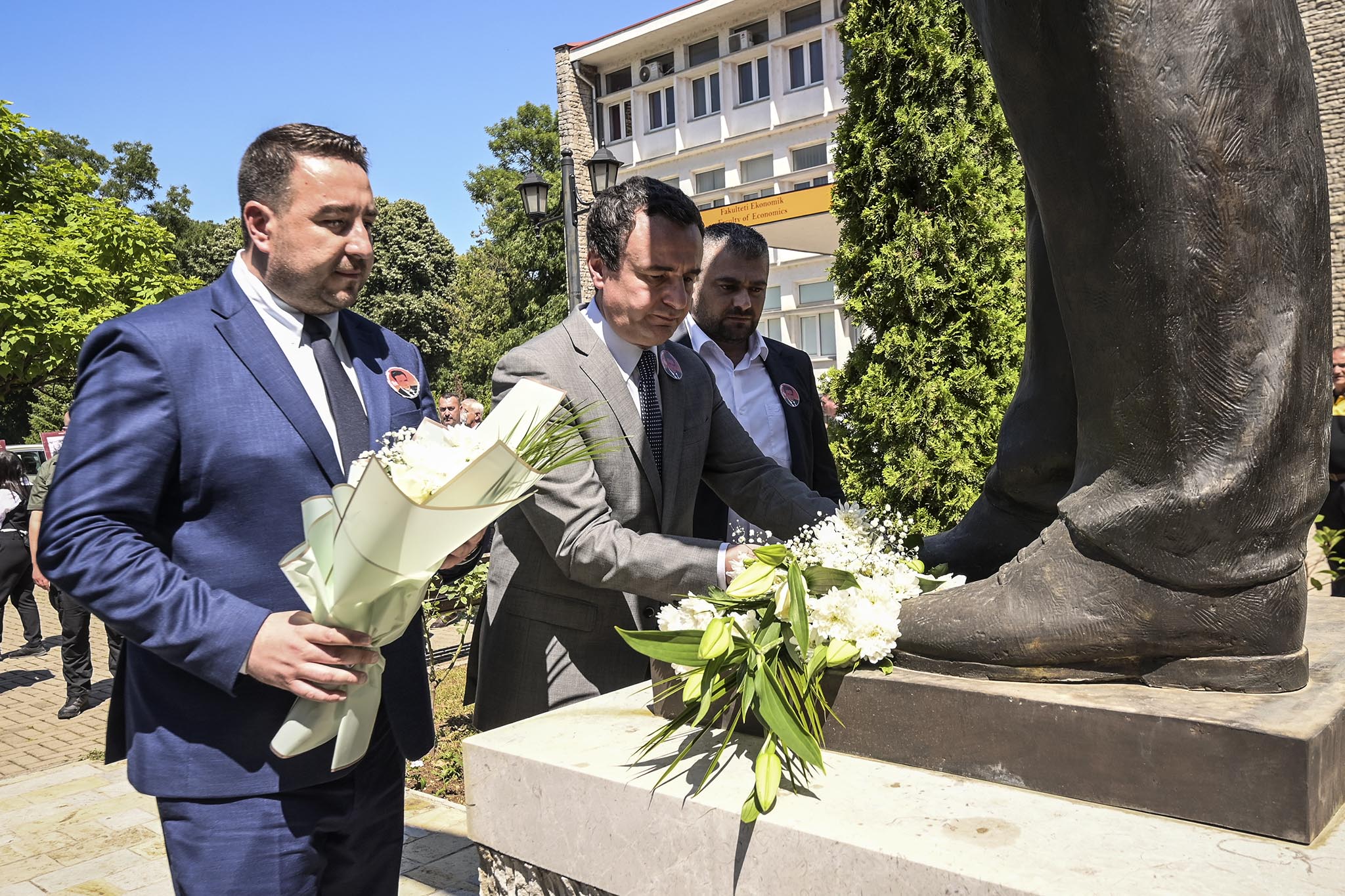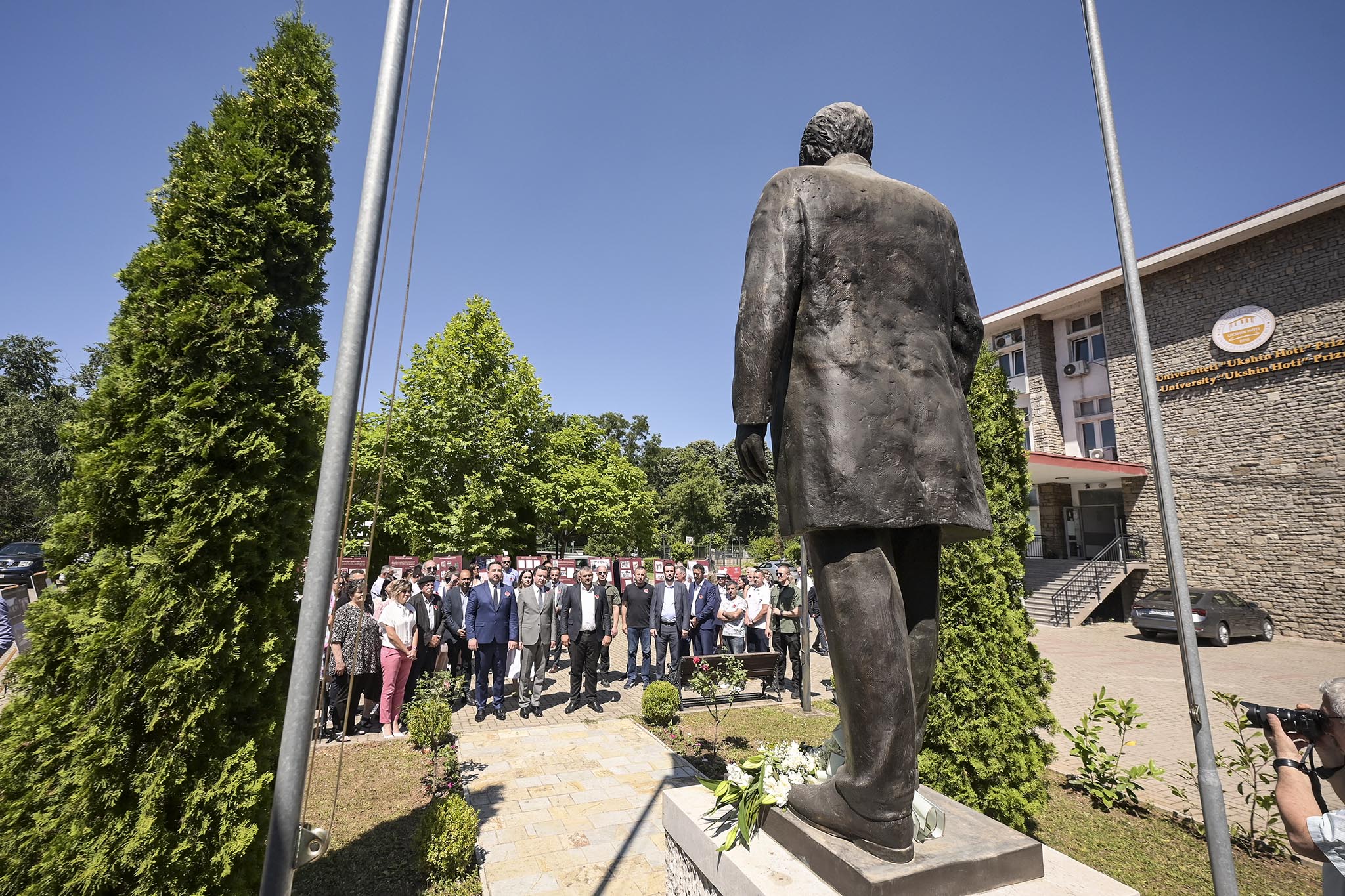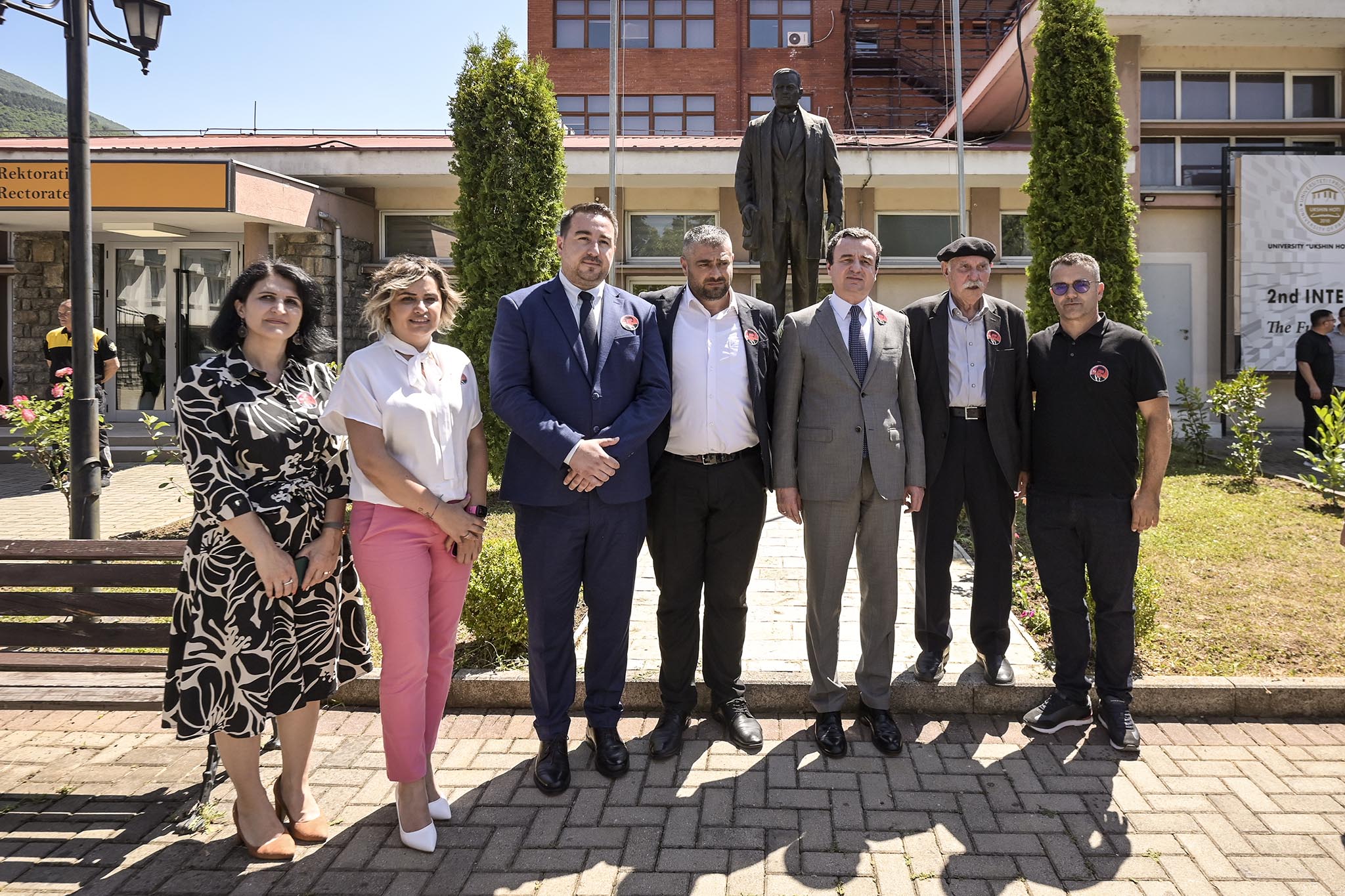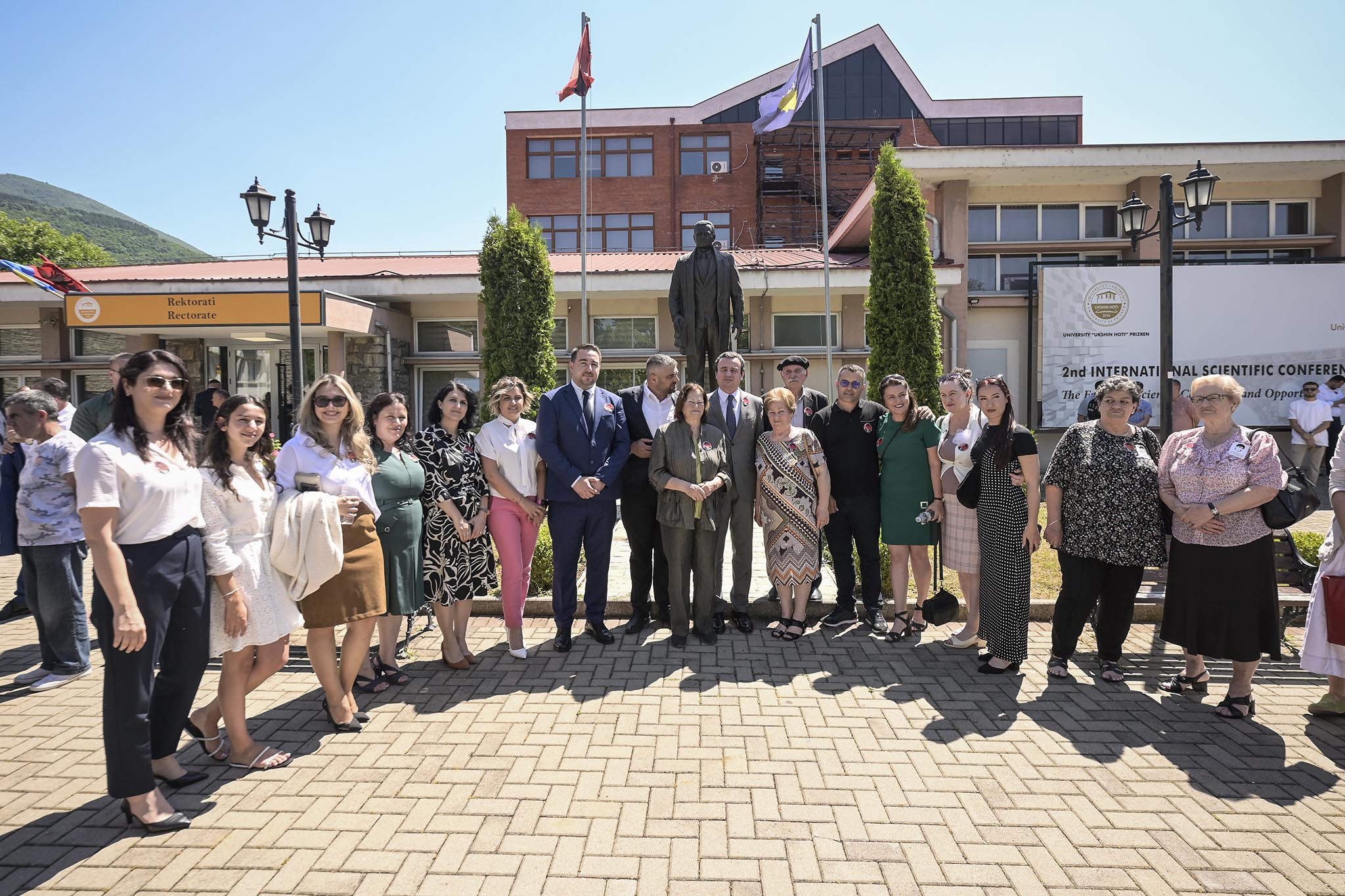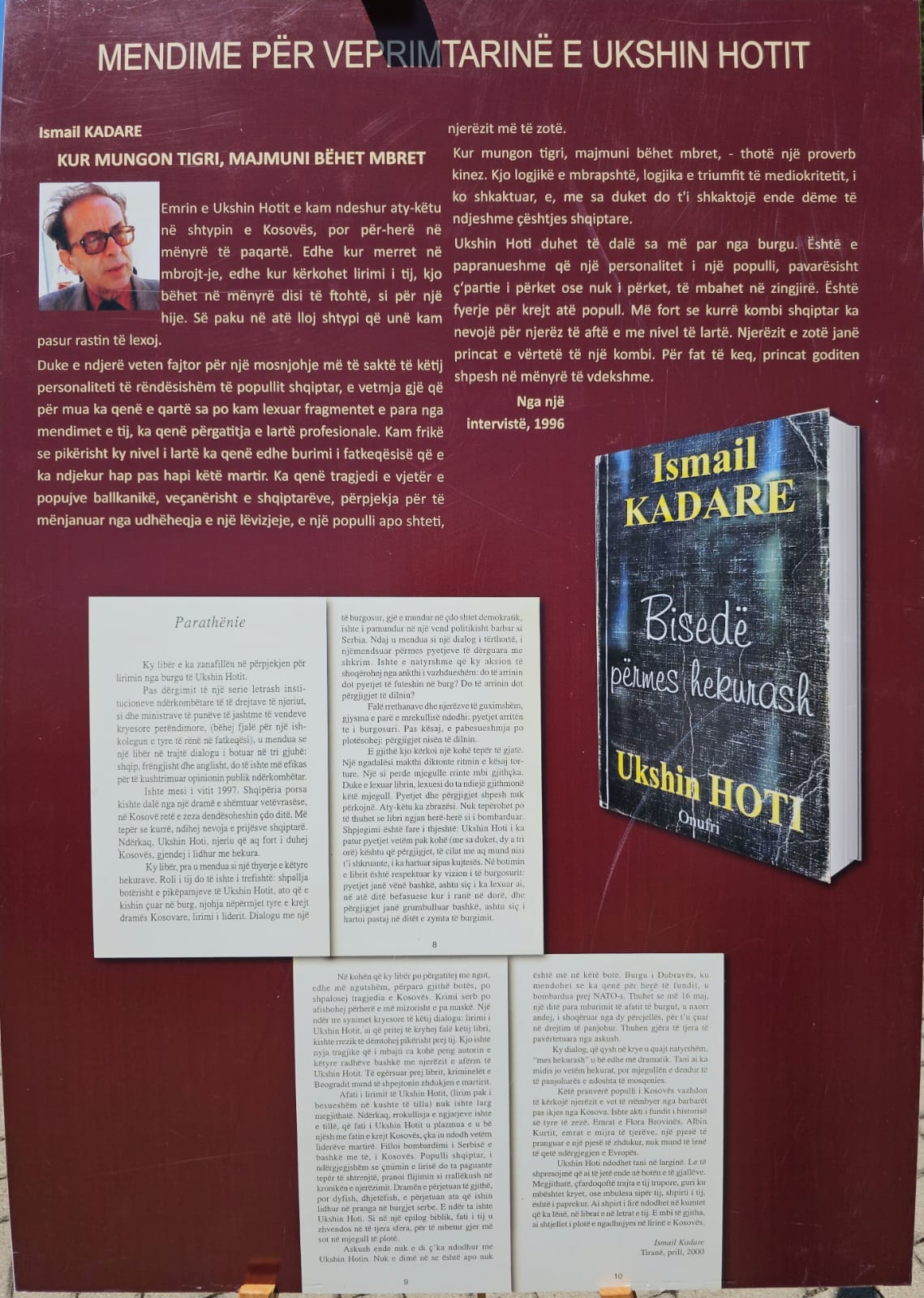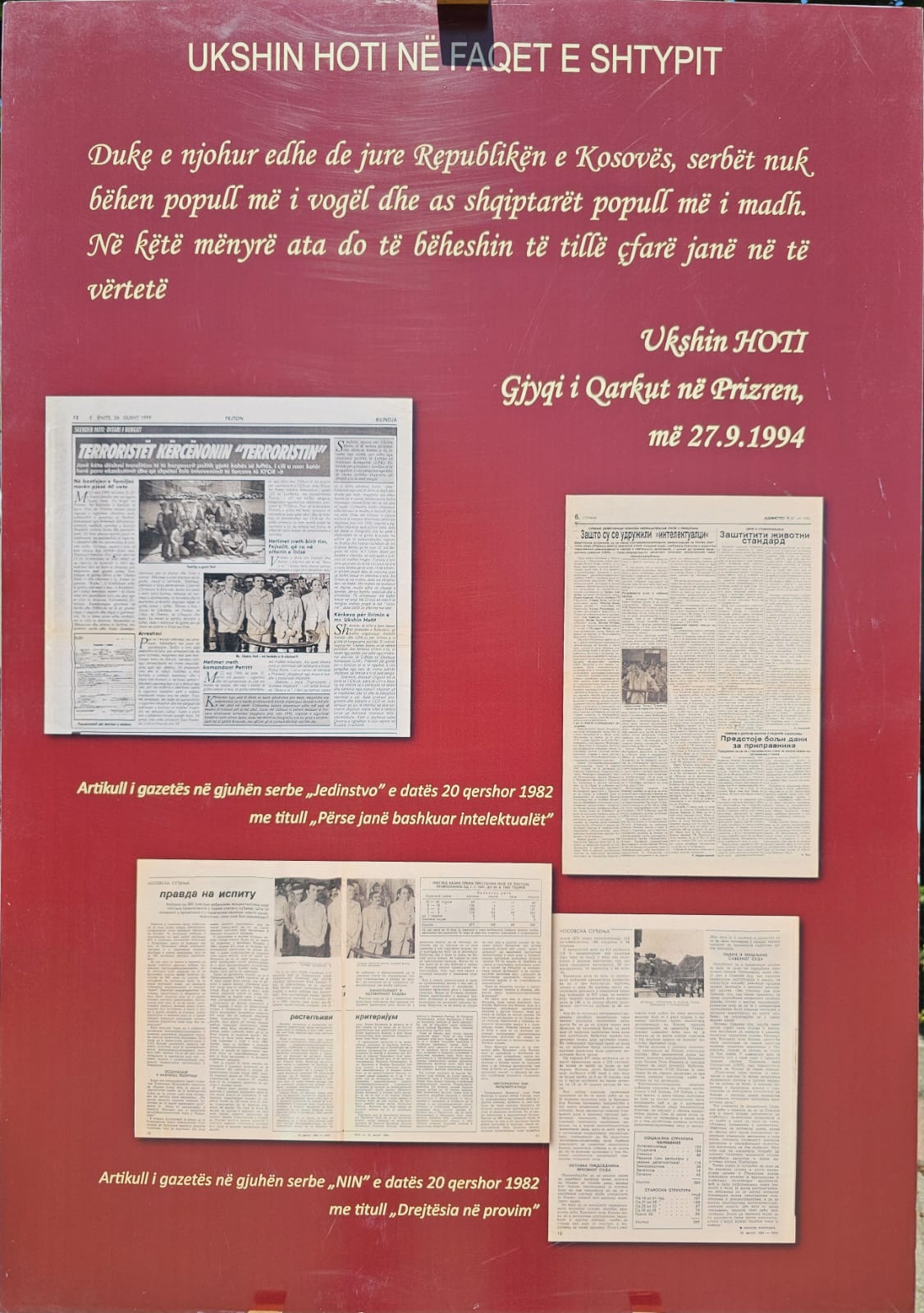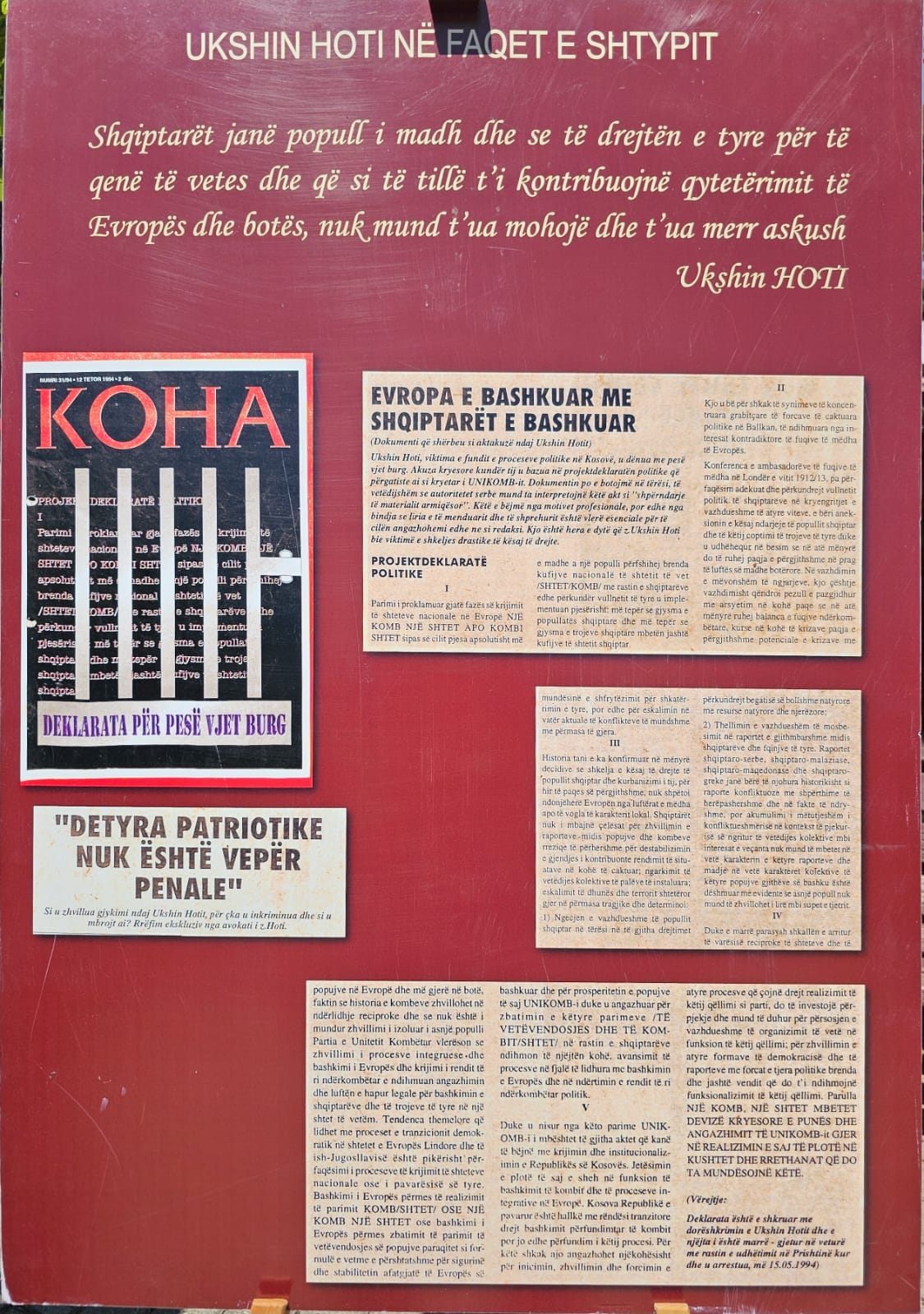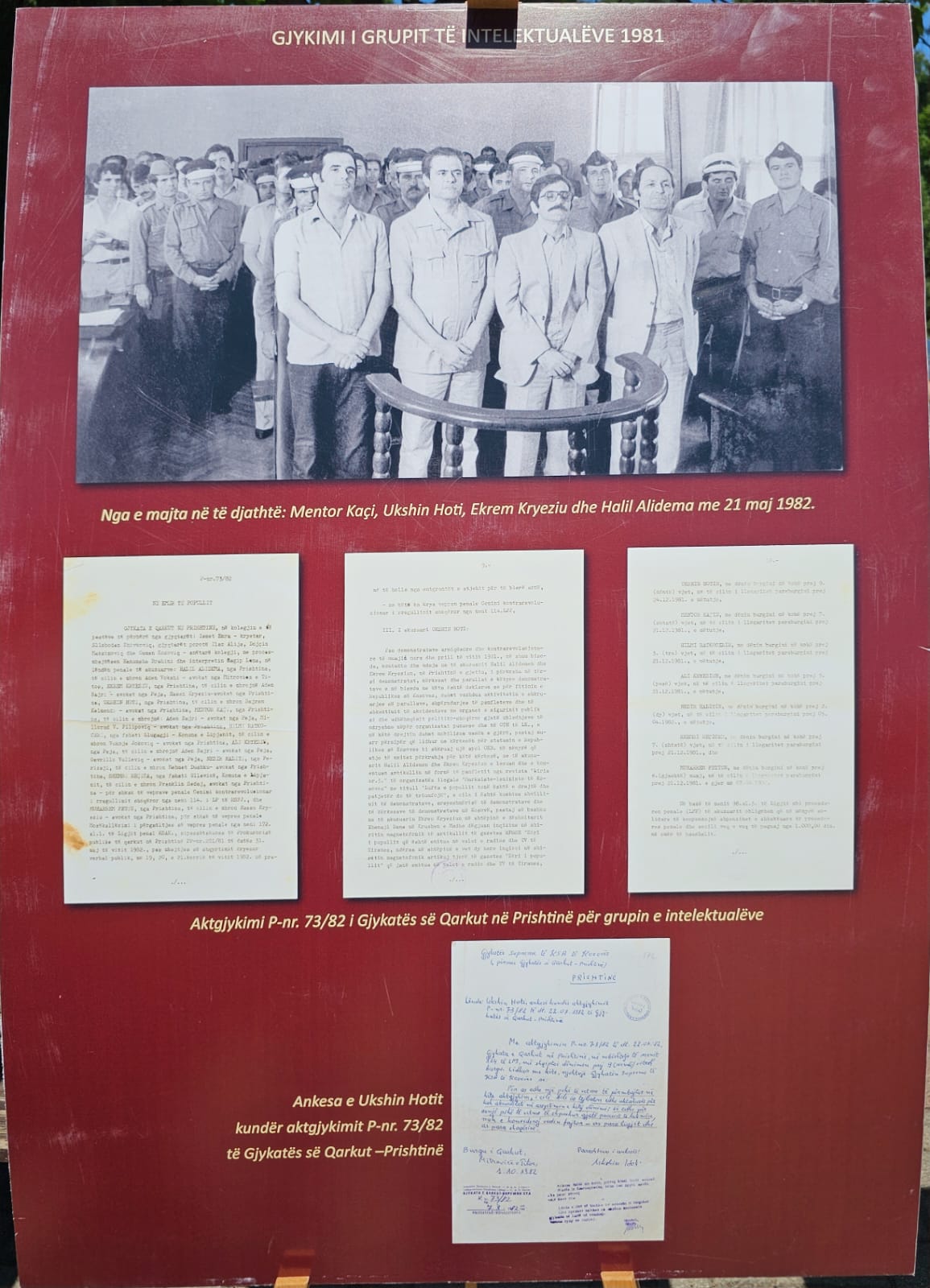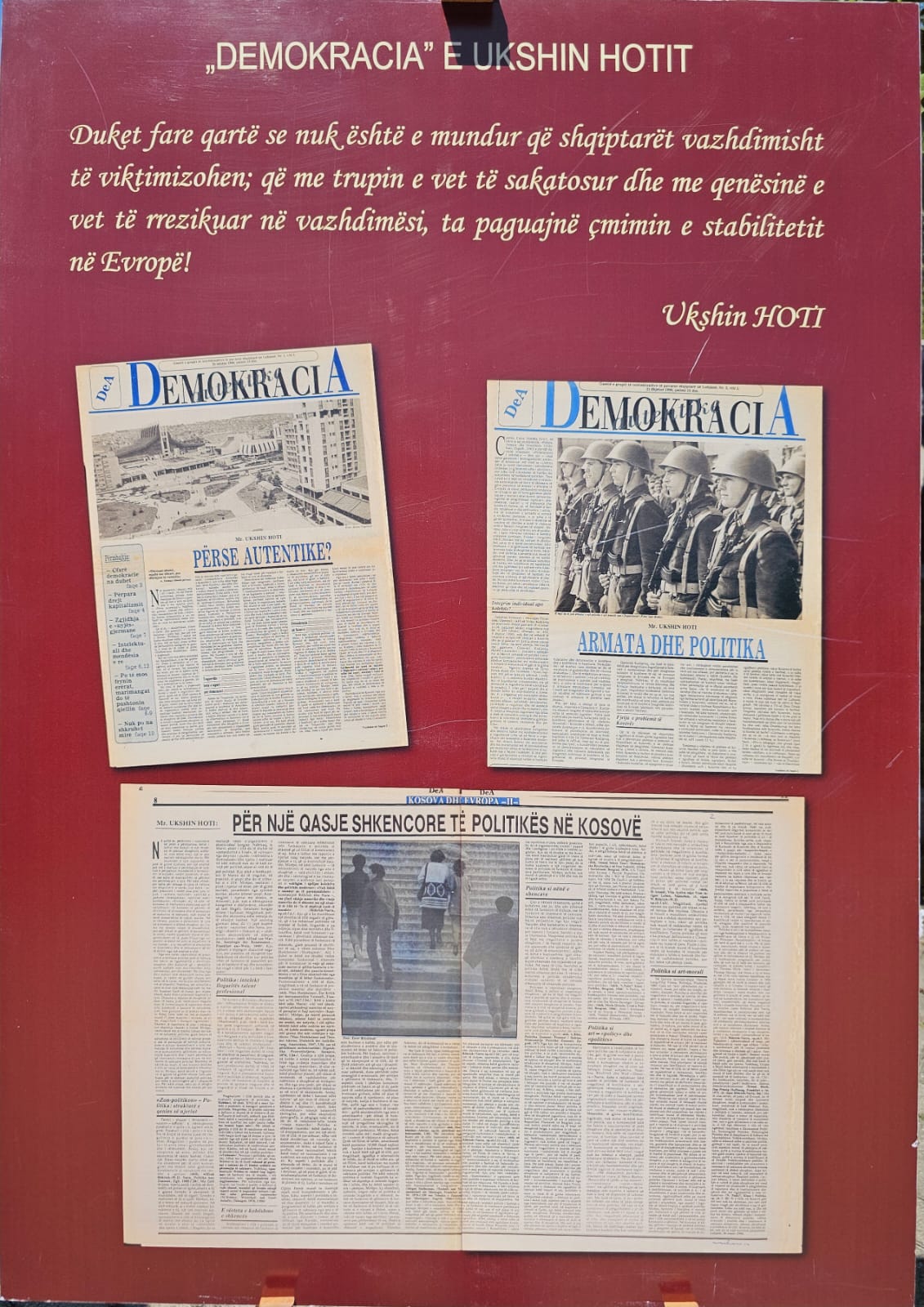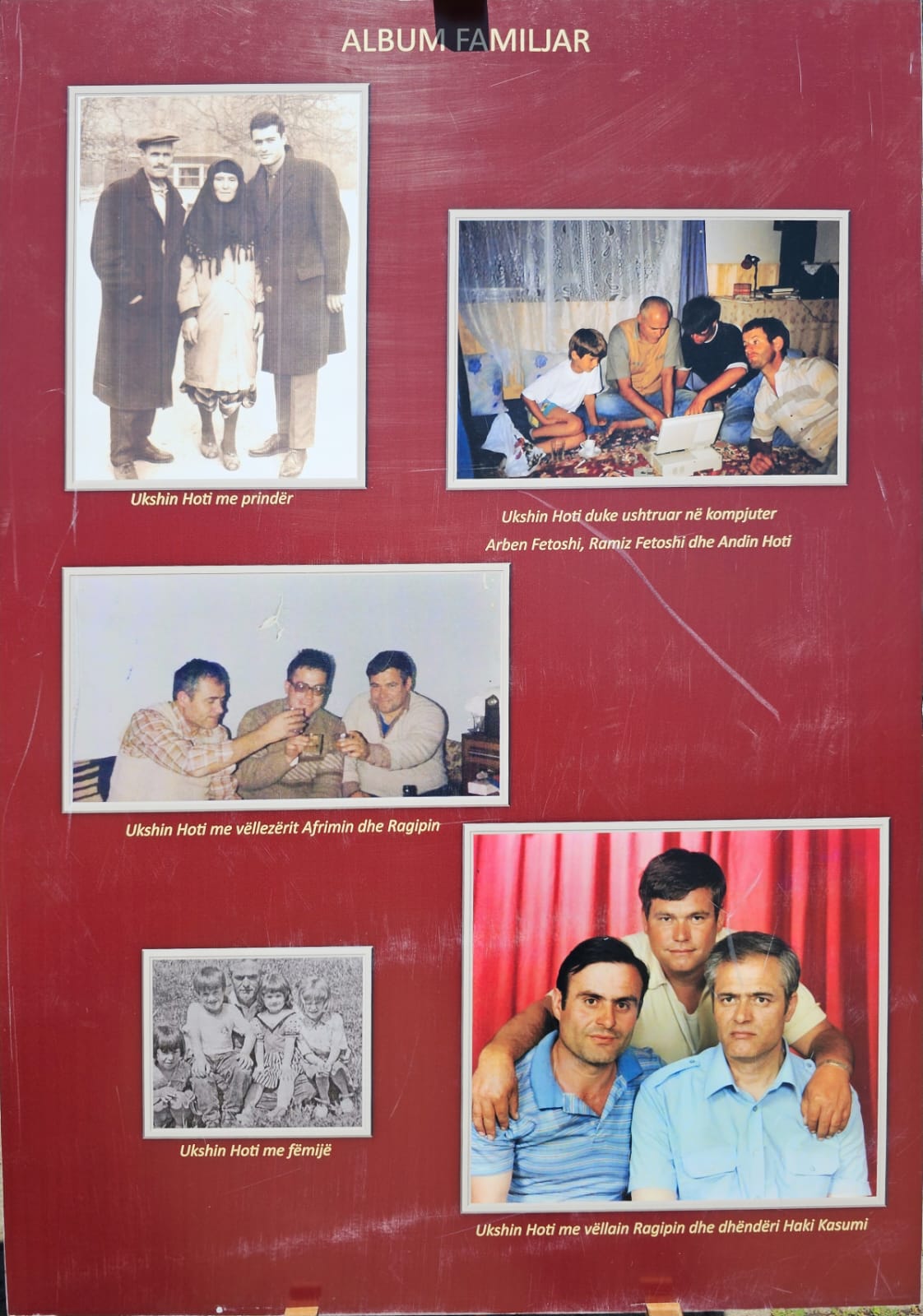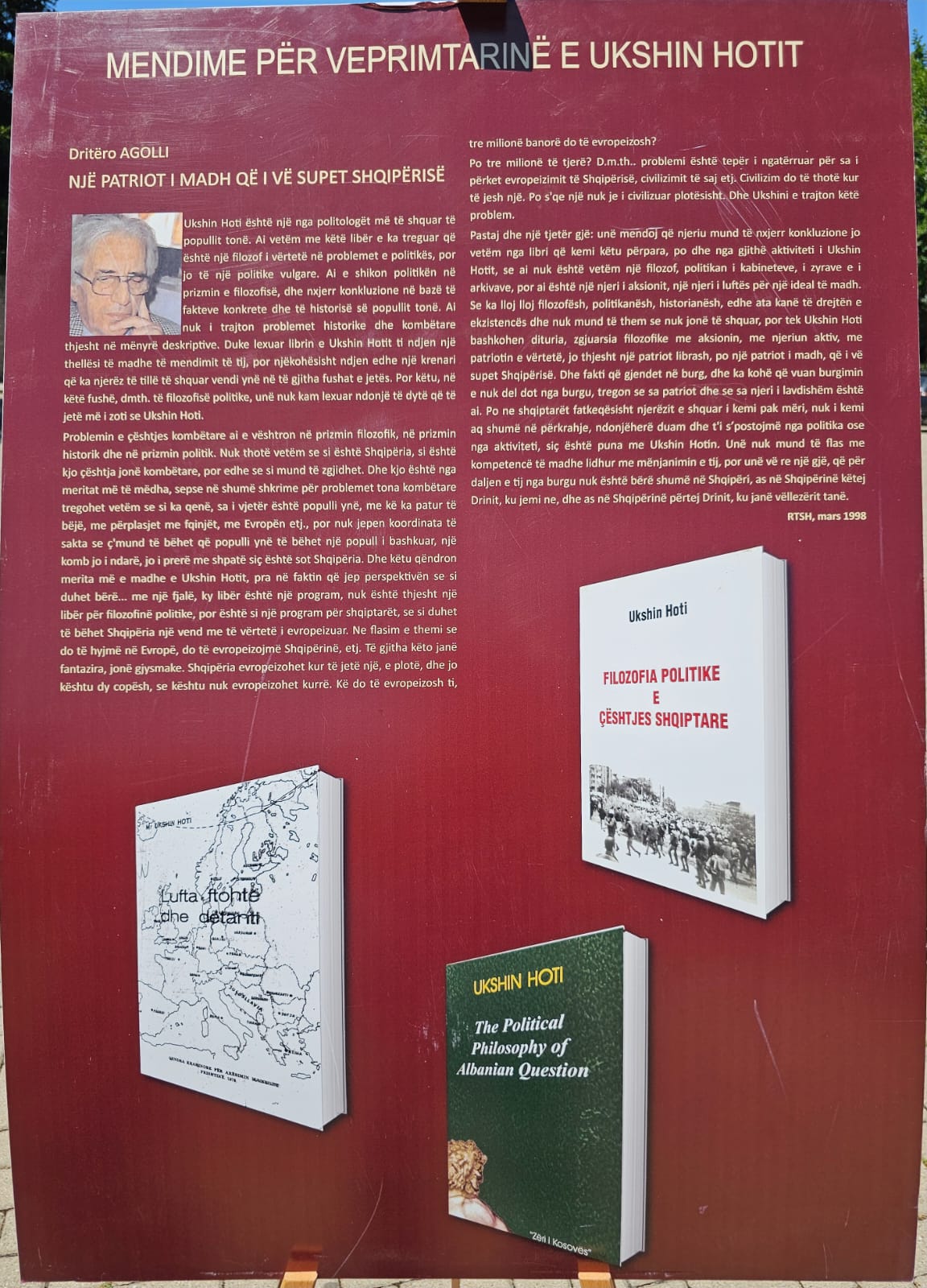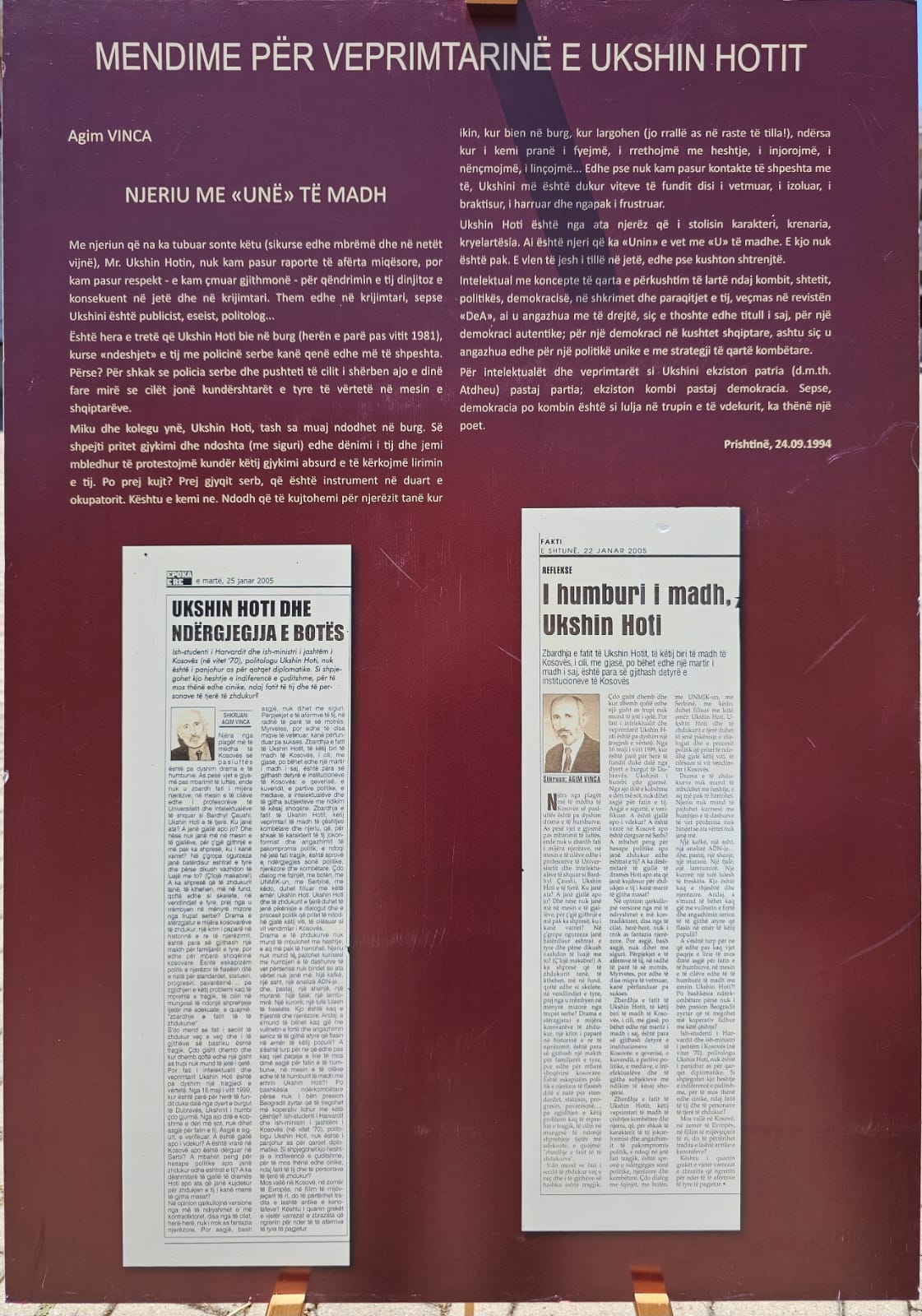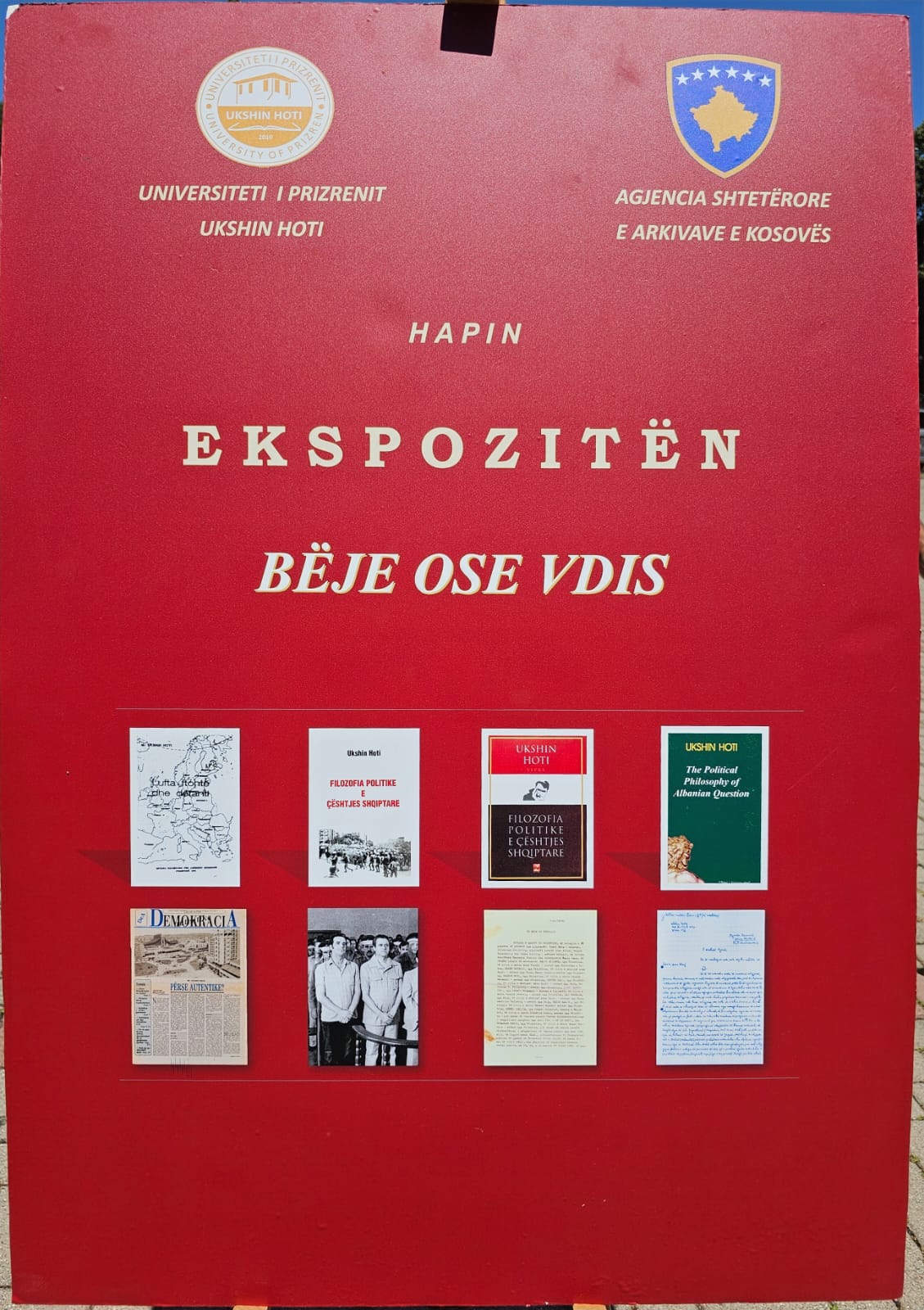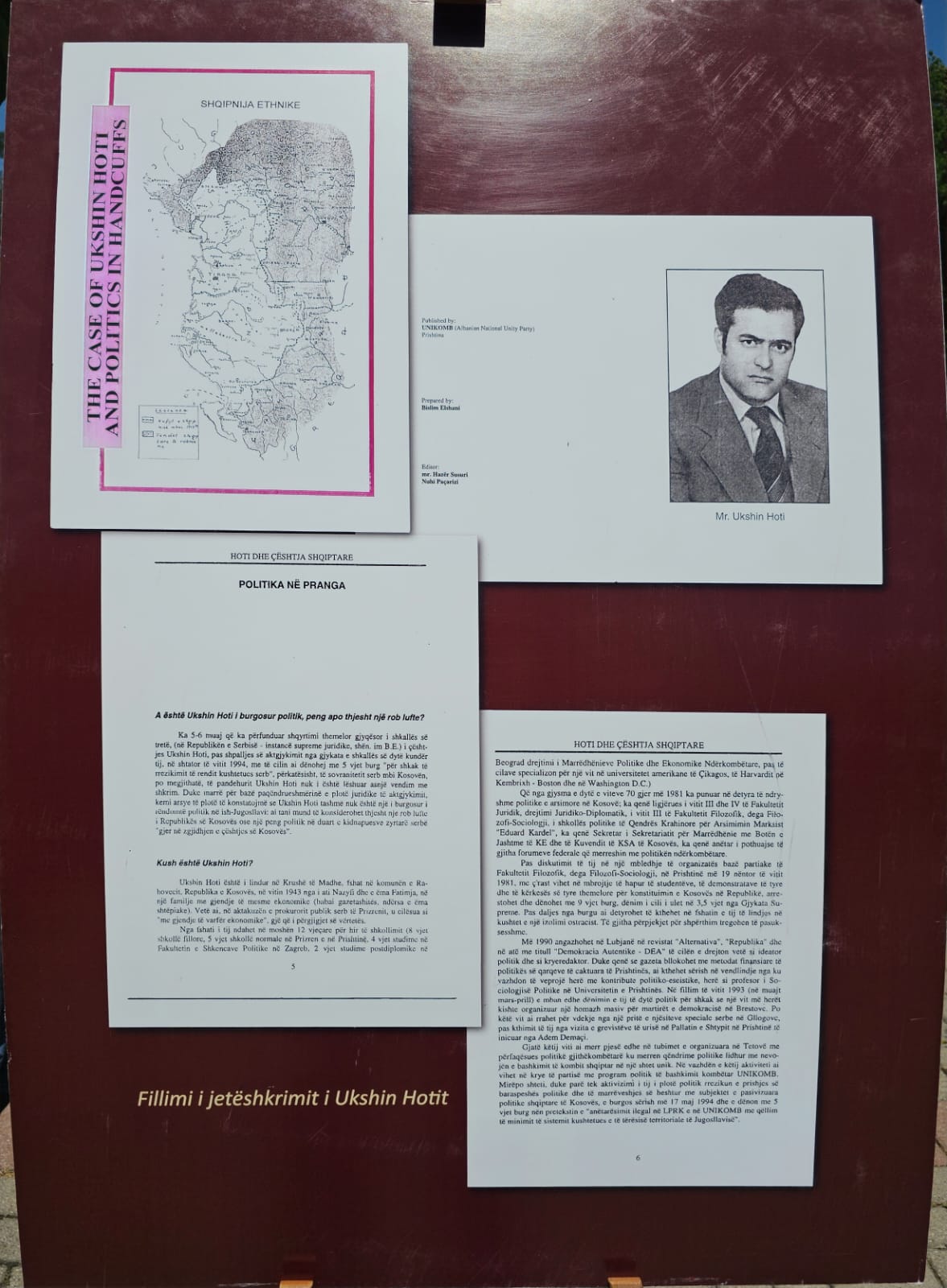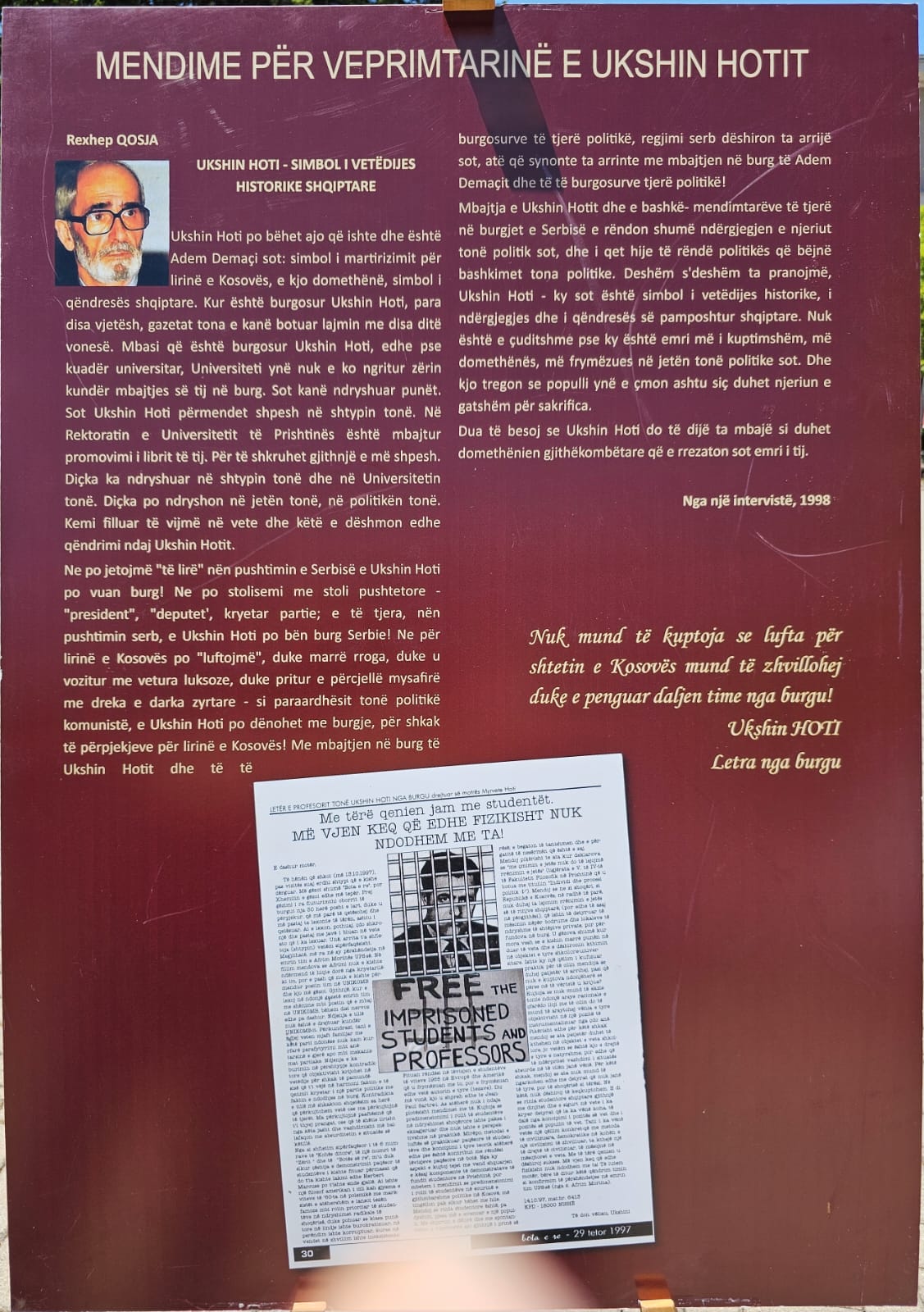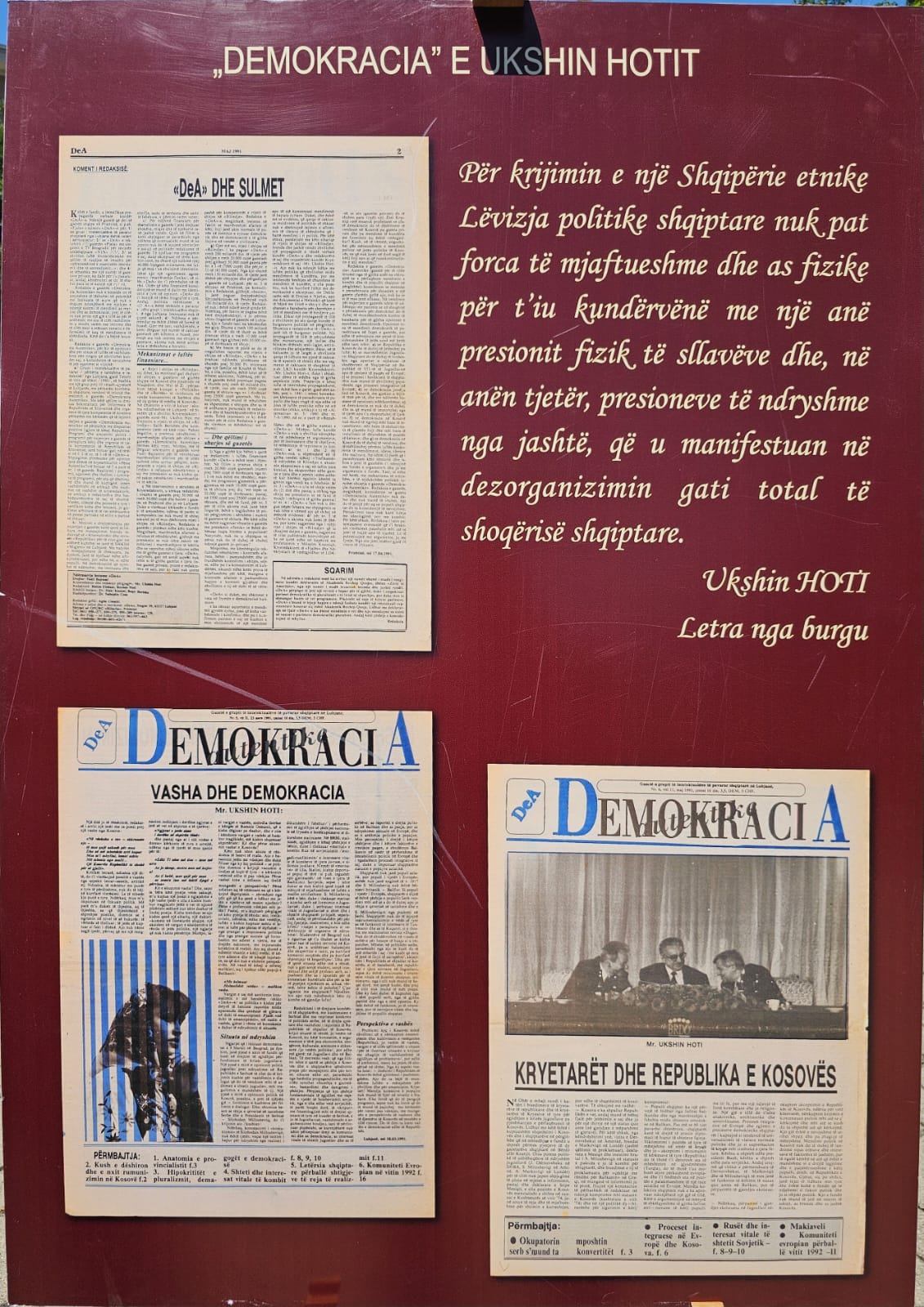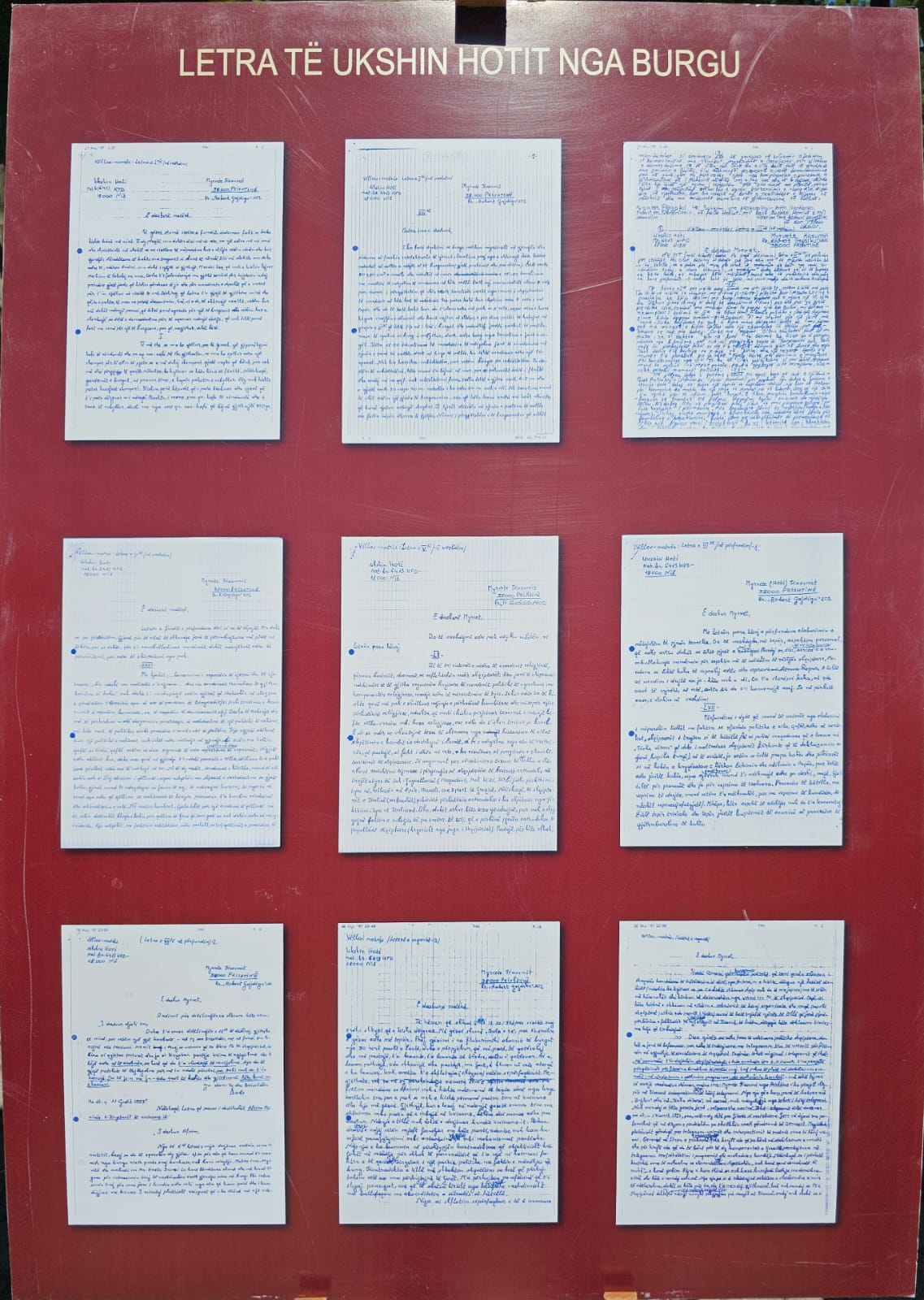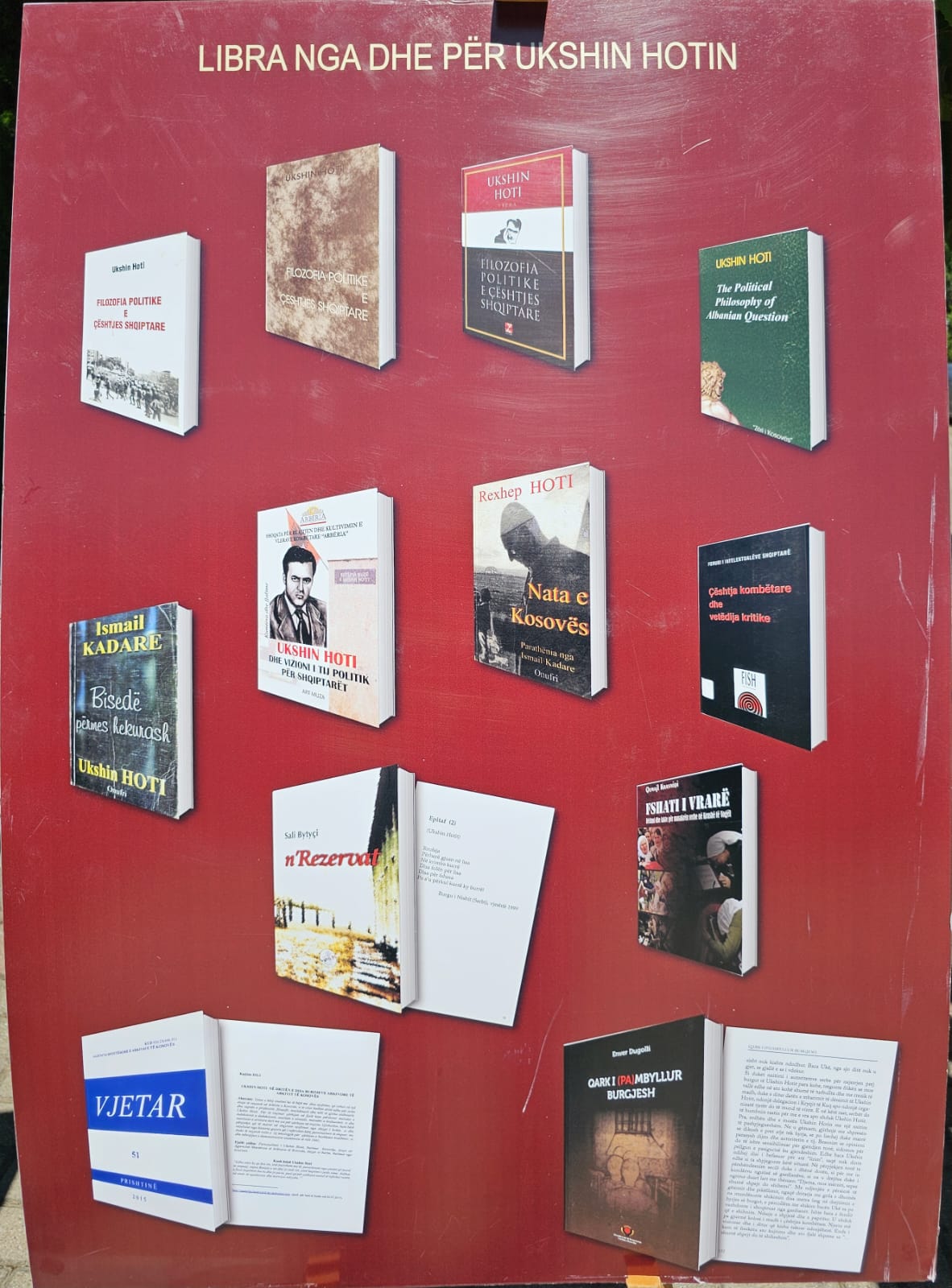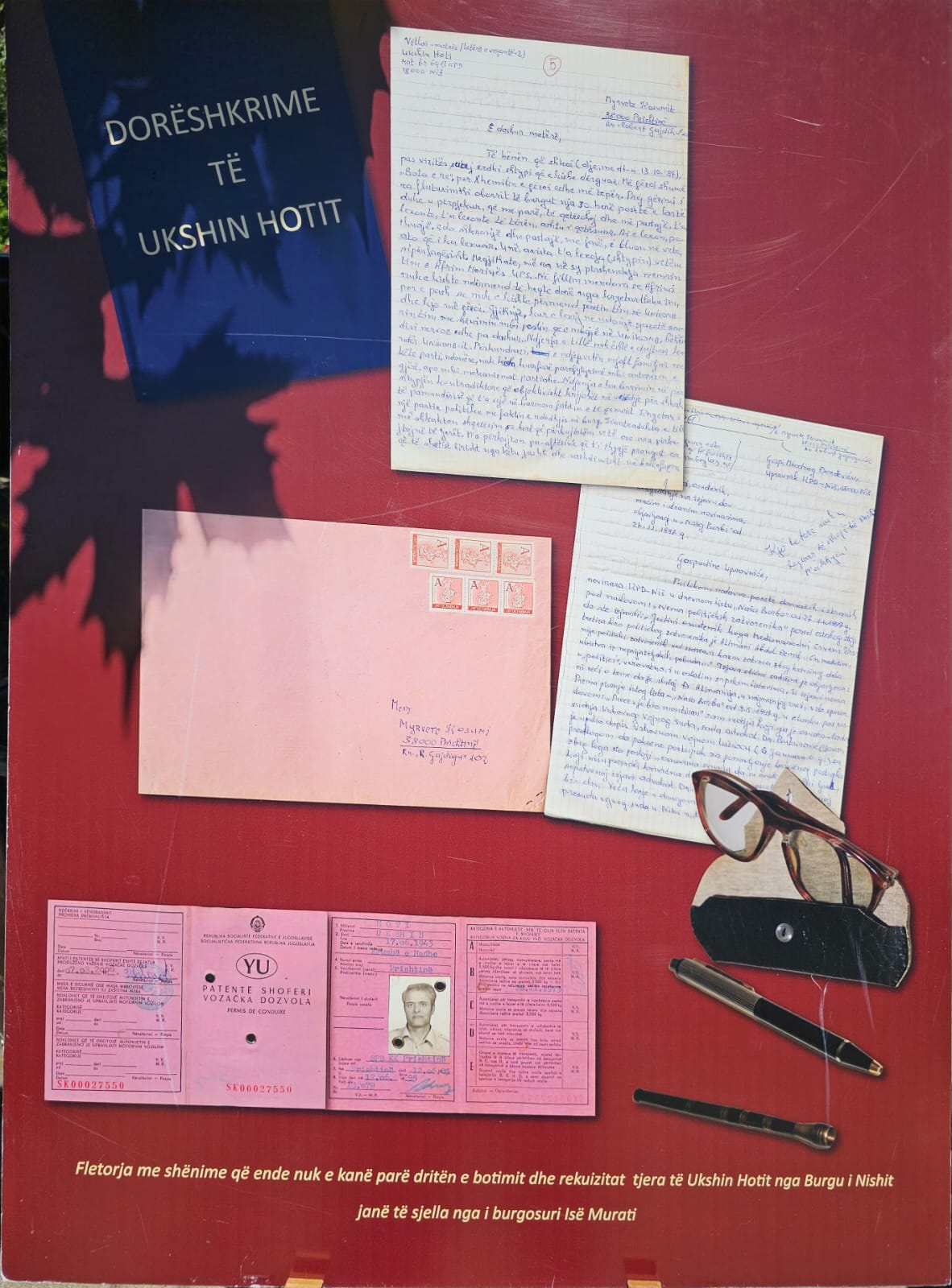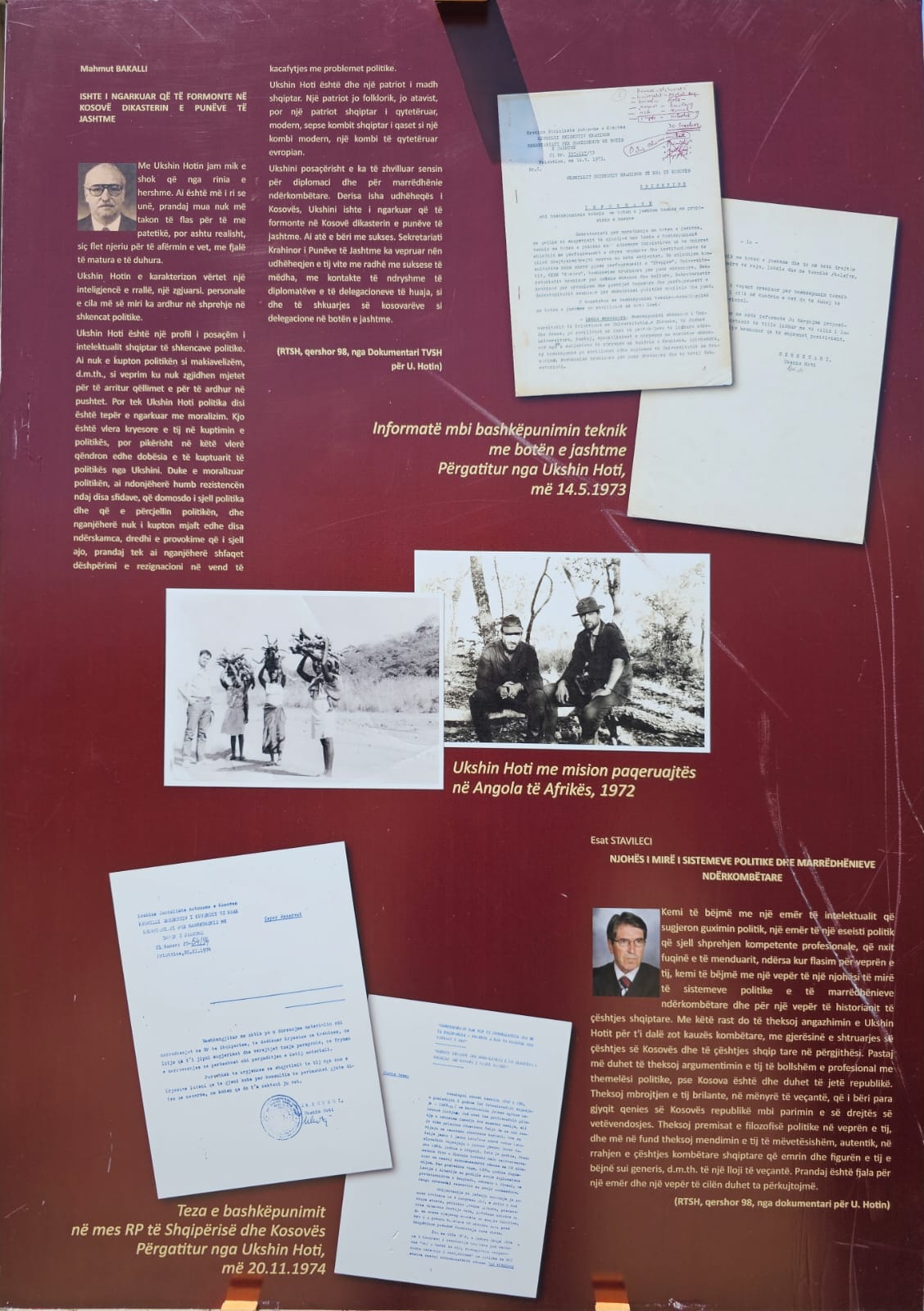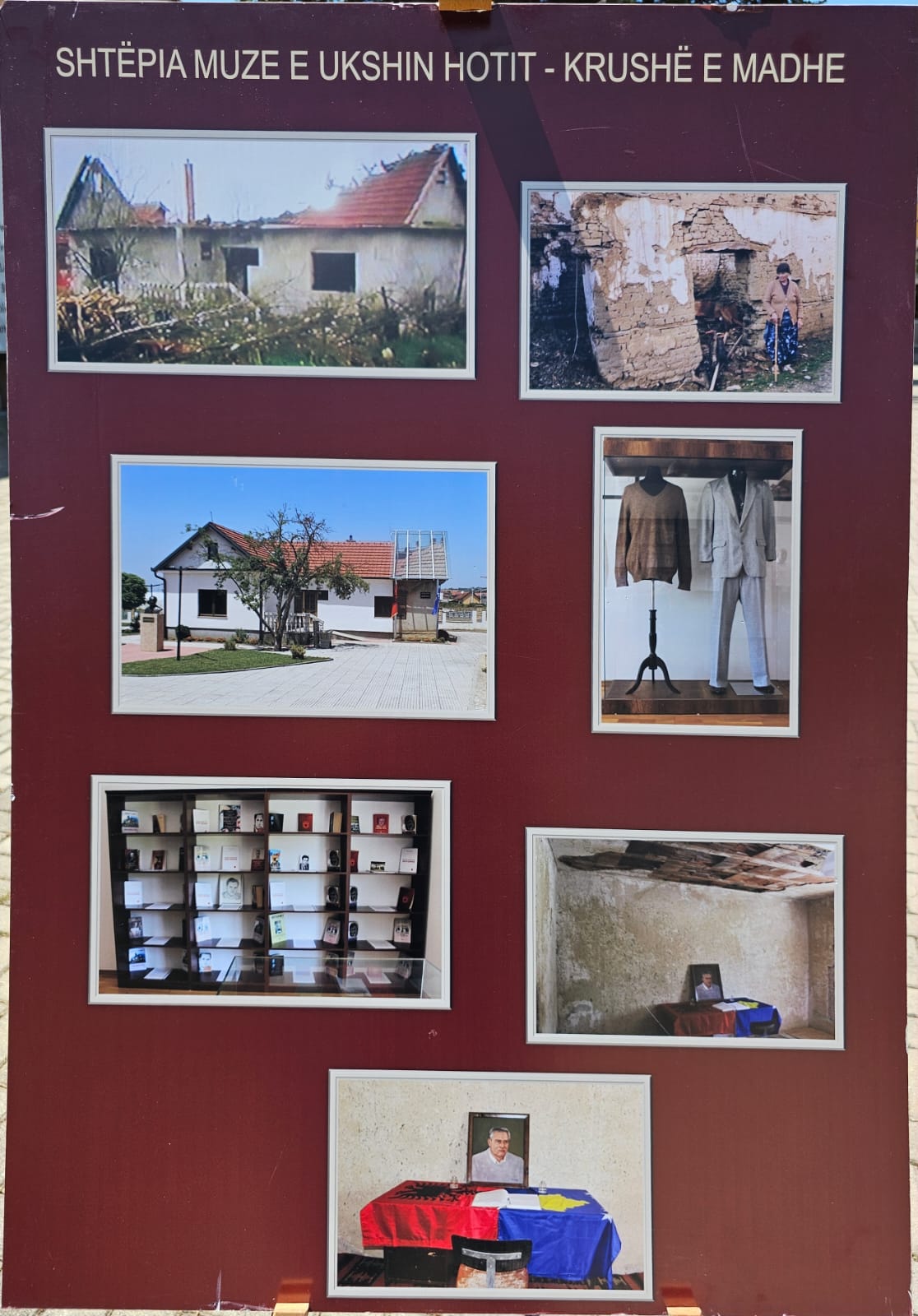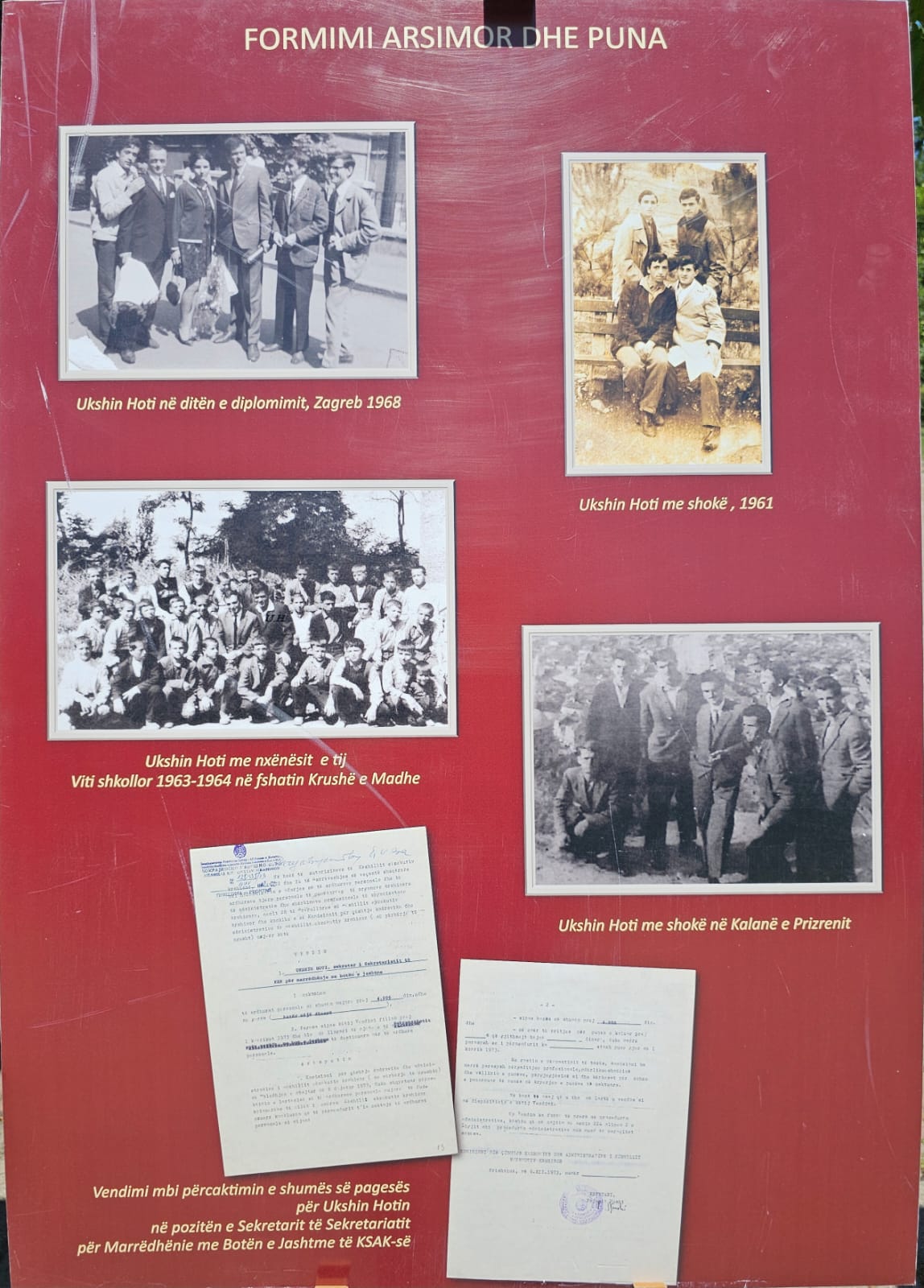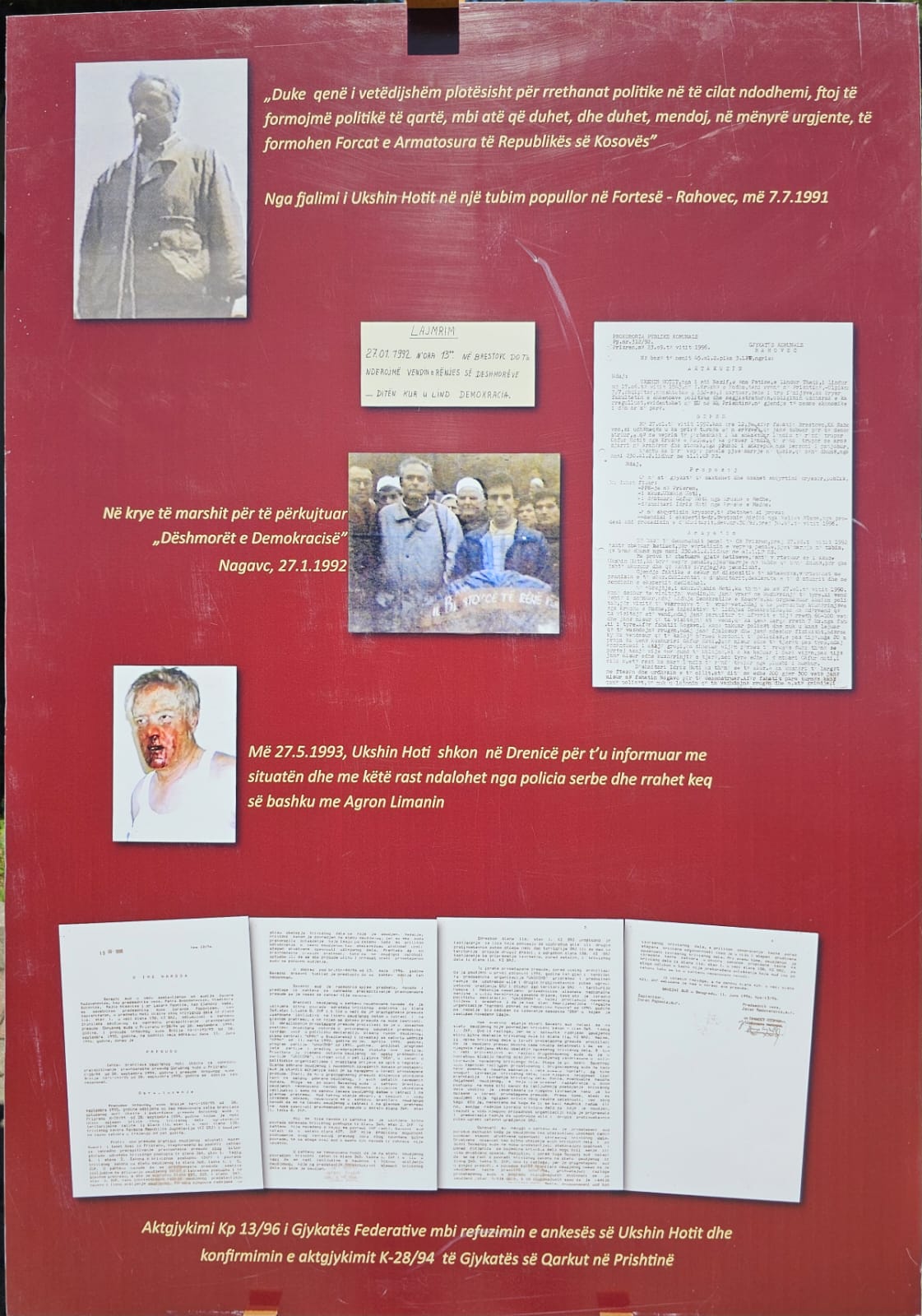Prizren, June 15, 2024
On the occasion of the 81st birthday of the professor and political thinker, Ukshin Hoti, the Prime Minister of the Republic of Kosovo, Albin Kurti, took part today in the event organized in honor and memory of the life and work of the distinguished professor Ukshin Hoti, which was held in the premises of the University of Prizren that bears his name. There he was welcomed by the Rector of the University of Prizren “Ukshin Hoti,” Mentor Alishani, as well as the family members of Professor Ukshin Hoti.
On this special day, commemorating the thinker, politician, diplomat, activist, educator, and above all, the dissident intellectual Ukshin Hoti, Prime Minister Kurti, while praising the distinguished figure of Professor Hoti, expressed that it was he who wanted to contribute to the body of Albanian social thought by making political science speak Albanian.
Among other things, the Prime Minister also spoke about the path of thought for freedom, as he said before we had the Path of Freedom of the Kosovo Liberation Army, we had the path of thought for freedom.
While being among a large number of participants, Prime Minister Kurti in his speech about Ukshin Hoti said that he had achieved his intellectual and professional formation at a very young age, adding that despite official engagements, he never stopped being a scholar.
“Precisely as Kosovo’s chief diplomat, he also wrote his first book on international relations titled ‘The Cold War and Detente’ in 1976,” highlighted the Prime Minister. “He lived what he studied and studied what he lived,” Prime Minister Kurti further stated.
“For Ukshin Hoti, the duty of the intellectual was not to speak the truth to power—as a famous definition of the intellectual’s role in society goes… On the contrary, the duty of the intellectual is to speak the truth to the people by publicly exposing government lies. By doing so, the intellectual helps the people to intellectually defend themselves from the propaganda of various centers of power. This is the true mission of the intellectual. Therefore, Ukshin Hoti resigned at that time from the position of Secretary for Foreign Relations. He quickly realizes that speaking the truth to power was nothing more than a fall into complacency. One had to speak to the people,” the Prime Minister expressed before the attendees.
On the 81st birthday of Professor Hoti, the Prime Minister invited us to return to his work but also to the example that the life of Ukshin Hoti offers us.
“Let us do this always in the critical spirit that he himself embodied best. Social criticism informed by an unwavering respect for the truth is needed today as much as it was in the time when Hoti lived and worked. Today we have two bodies of Albanian social thought, the Republic of Albania and the Republic of Kosovo. Let us work hard and together so that these two bodies are coordinated with each other in the interest of the will, their rights, and the needs of the Albanian nation,” said Prime Minister Kurti at the end of his speech.
In marking this important date, alongside Prime Minister Kurti were also Deputy Prime Minister Emilija Rexhepi, Deputy Minister Elshani, members of the Kosovo Assembly, the mayors of Suhareka and Rahovec, Bali Muharremaj and Smajl Latifi, as well as numerous professors, students, disabled persons, and veterans, who were there to honor the figure of Ukshin Hoti.
In the courtyard of the University of Prizren, the exhibition “Do or Die” was also displayed, featuring photographs from the life and work of Ukshin Hoti, his letters from prison, various manuscripts, and press articles.
Prime Minister Kurti’s full speech:
I am coming here to the University of Prizren “Ukshin Hoti” from the Pashtrik mountains, where today we inaugurated the Path of Freedom, which represents the path from the Hasi Lakes to Kruma that was traversed by the soldiers of the Kosovo Liberation Army as they were being equipped with arms and ammunition from Albania during the war of 1998-1999. It is on this very path that in the harsh December of 1998, 42 martyrs of the Kosovo Liberation Army, led by Muja Halil Krasniqi, Commander Kapuqi, heroically fell, and now, as we are here, a motorcycle race is taking place there that will become a tradition on this Path of Freedom.
But, before we had the Path of Freedom of the Kosovo Liberation Army, we had the path of thought for freedom, so what better way to mark this than here at the University of Prizren, named after the greatest thinker of our modern history, Ukshin Hoti.
Honorable Ms. Emilja Rexhepi, Deputy Prime Minister of the Government of the Republic of Kosovo for Human Rights and Minorities,
Honorable Professor Mentor Alishani, Rector of the University of Prizren “Ukshin Hoti”,
Honorable Deputy Minister of Elshani,
Honored family of Professor Ukshin Hoti, Uncle Uke,
Beloved Andin and Brisilda,
Honored Members of the Assembly of the Republic, Salih Zyba, Artan Abrashi, Arbër Rexhaj, Fitore Pacolli Dalipi, Visar Korenica, Jetmira Brenezi,
Honored Municipal Mayors Smajl Latifi of Rahovec and Bali Muharremaj of Suhareka,
Honored former political prisoners, veterans, and disabled fighters of the UÇK liberation war,
Professors and students,
Sisters and brothers,
Ladies and gentleman,
Honorable attendees,
As if he felt he wouldn’t have many years to live, Ukshin Hoti reached significant milestones in his intellectual and professional development at a relatively young age. Understanding early his passion for social sciences, he decided to specialize in political sciences. After university studies in Zagreb and Belgrade (1964-1970), he returned to Kosovo, where he undertook various diplomatic roles, including leading the newly created Kosovo secretariat for foreign relations. But despite these official engagements, he never ceased to be a scholar. Precisely as Kosovo’s chief diplomat, he also wrote his first book on international relations titled ‘The Cold War and Detente’ in 1976. In Uncle Uke’s life, practice and theory were inseparable. He lived what he studied and studied what he lived. In a commemorative writing on Ukshin Hoti from 2004, Arben Xhaferri rightly titled it “Ukshin Hoti: Living Politics.”
The renowned French sociologist Émile Durkheim defined the state as “the organ of social thought.” Traditionally, as a people without their own state, Albanians had not had the opportunity to develop this organ throughout their history. Ukshin Hoti wanted to contribute precisely here: to the organ of Albanian social thought by making political science speak Albanian.
As a critical political scholar, Ukshin Hoti thought that politics has the duty, I quote, “to investigate the relationship between the appearance and the essence of things for the benefit of emancipation,” end quote. This is a concept of politics as a critical social activity and science, which Ukshin Hoti shared with the social theory of the Frankfurt School (Adorno, Marcuse, Horkheimer and Habermas). Therefore, it is not at all coincidental that out of the three main phases of his life, the longest is that of dissidence. If his student years in Zagreb and Belgrade lasted six years of his life (1964-1970), and his professional career as a Kosovar diplomat another seven years (1970-1977), the years of active dissidence are the longest period of his life, extending over a full eighteen years (1981-1999).
For Ukshin Hoti, the duty of the intellectual was not to speak the truth to power—as a famous definition of the role of the intellectual in society suggests. Power knows the truth very well; in fact, it knows the truth better than anyone else, so it does not need intellectuals to tell it. On the contrary, the duty of the intellectual is to speak the truth to the people by publicly exposing the lies of power. By doing so, the intellectual helps the people to intellectually defend themselves from the propaganda of various centers of power. This is the true mission of the intellectual. Therefore Ukshin Hoti resigned at that time from the position of Secretary for Foreign Relations. He quickly realizes that speaking the truth to power was nothing more than a fall into complacency. One had to speak to the people. Yet, the people’s ego should not be flattered either. They also deserved to hear the truth about cultural vices and archaic customs that threatened to sabotage the struggle for liberation.
It is undeniable that such a worldview on the role of the intellectual does not secure friends in high offices or official honors. As Edward Said said, a life according to this worldview on the role of the intellectual is a solitary one, but always better than participating in a shared tolerance for the status quo.
As we mark the 81st birthday of the thinker, politician, diplomat, activist, educator, and above all, the dissident intellectual Ukshin Hoti, let us return to his work but also to the example that his life offers us. Let us do this always in the critical spirit that he himself embodied best. Social criticism informed by an unwavering respect for the truth is needed today as much as it was in the time when Hoti lived and worked. Today we have two bodies of Albanian social thought, (the Republic of Albania and the Republic of Kosovo). Let us work hard and together so that these two bodies are coordinated with each other in the interest of the will, their rights, and the needs of the Albanian nation.
Thank you!
Last modified: June 25, 2024
